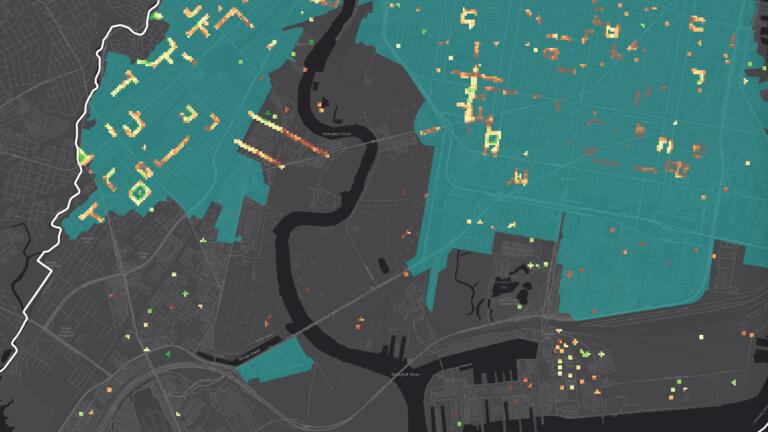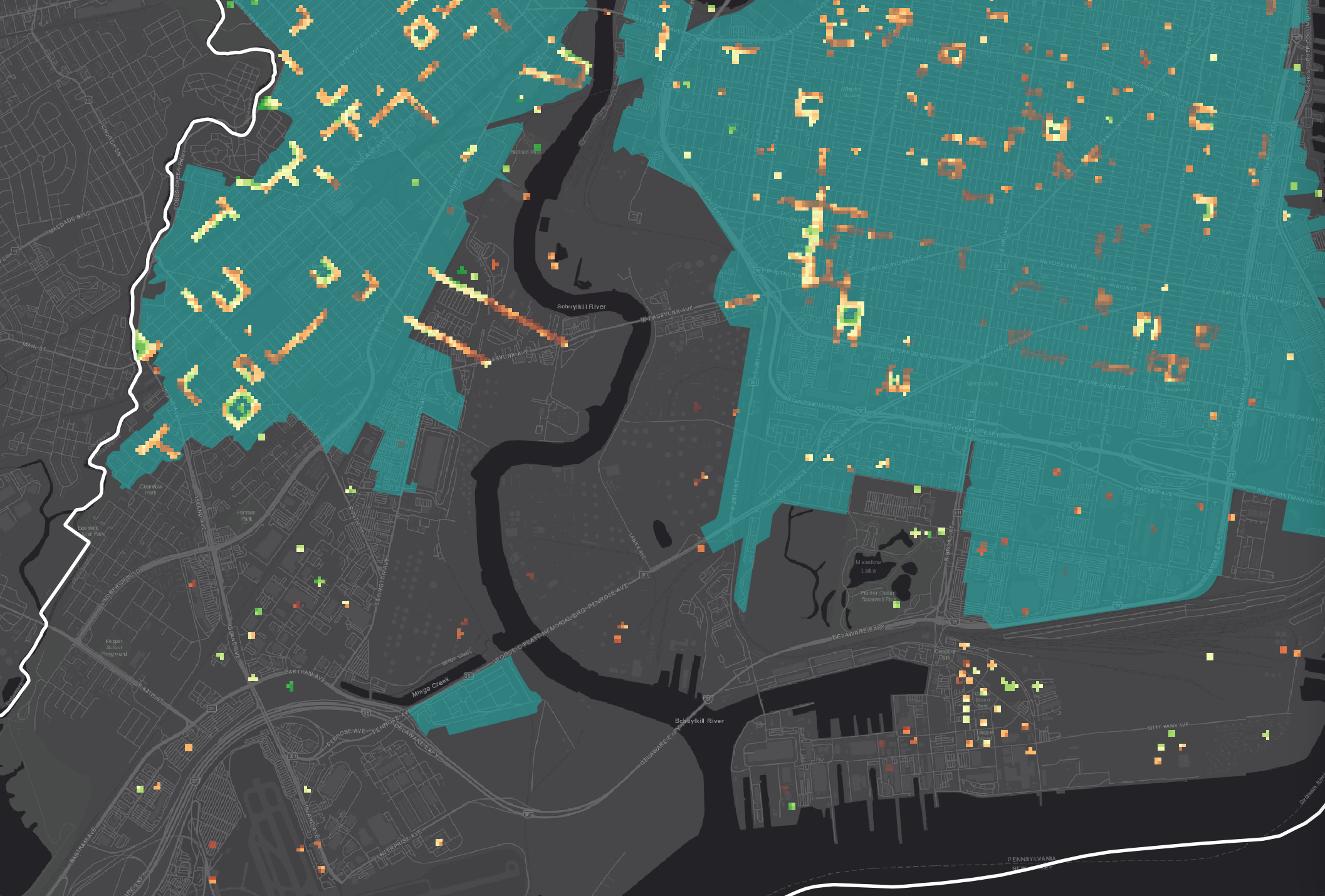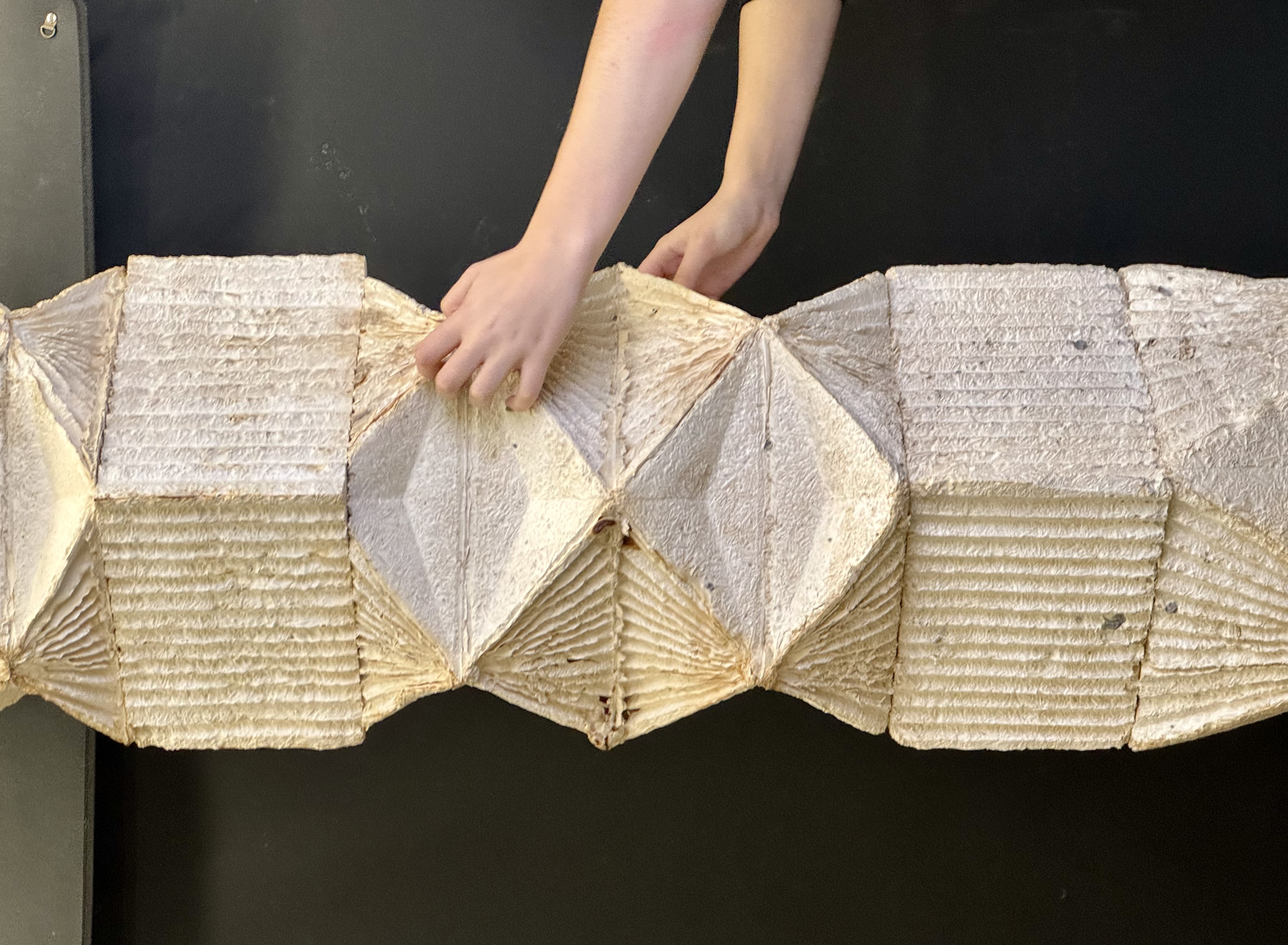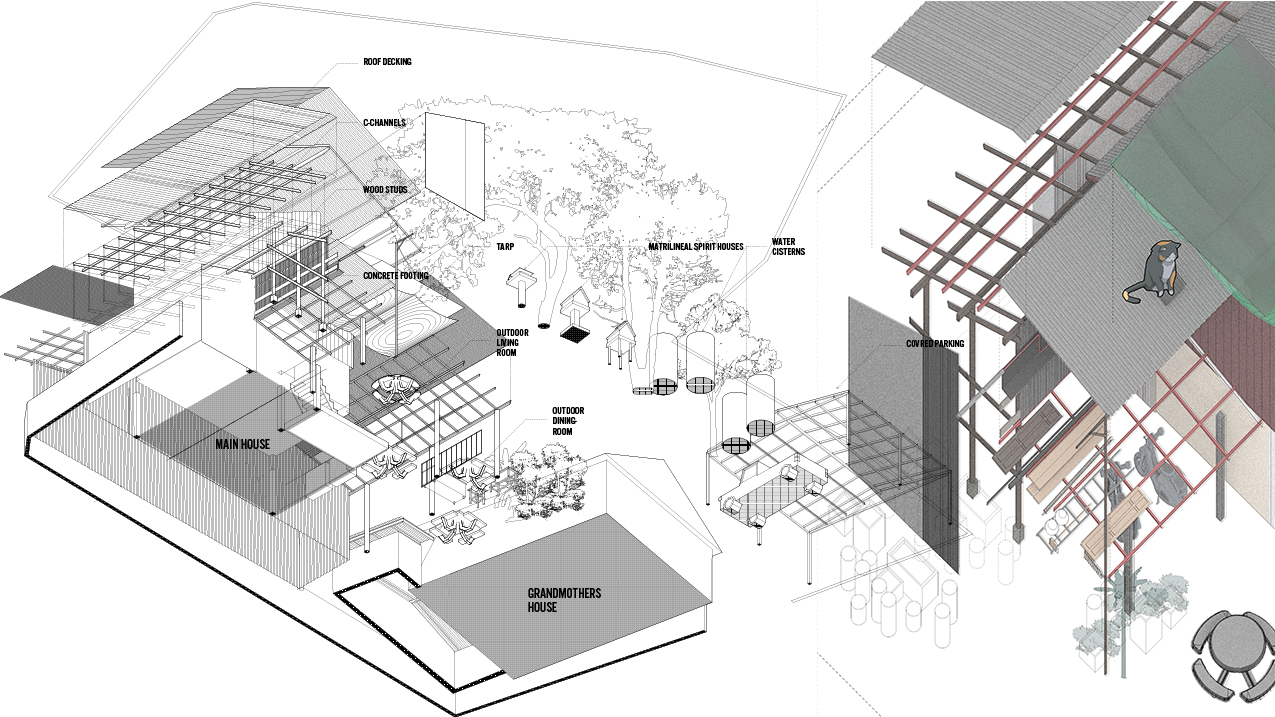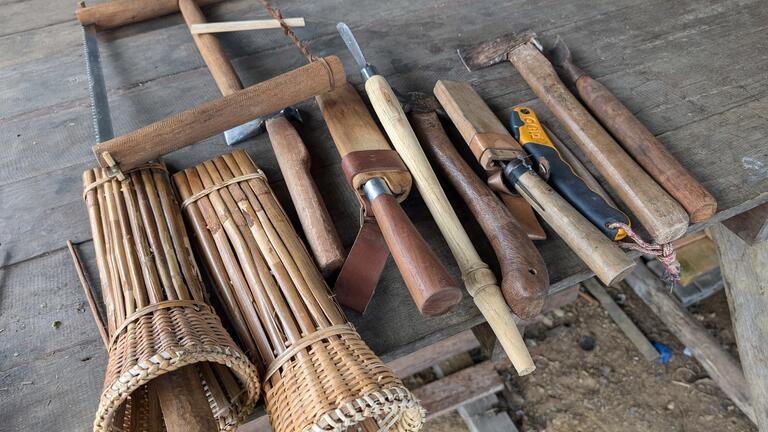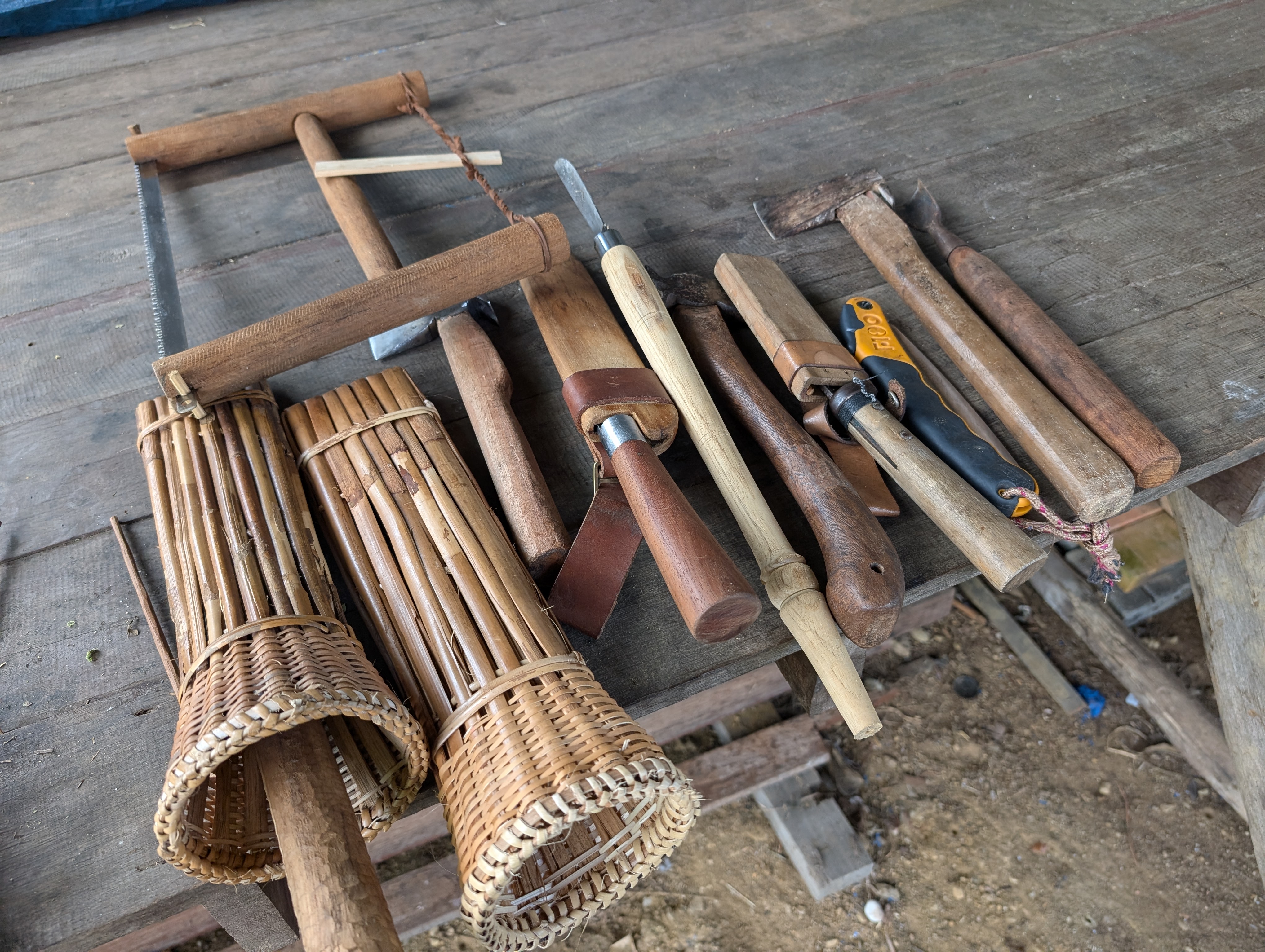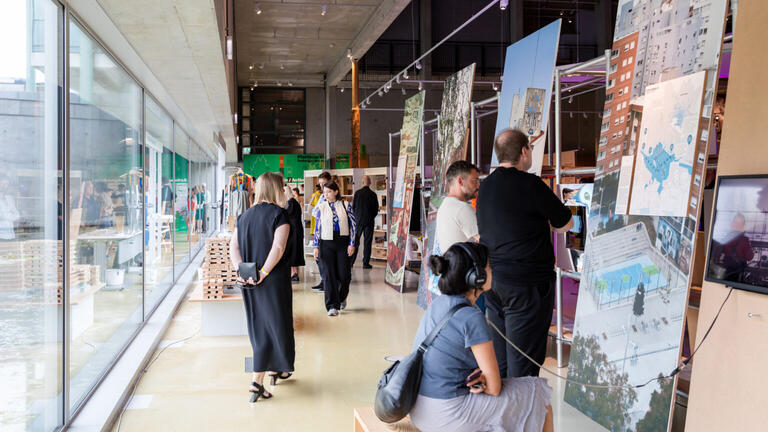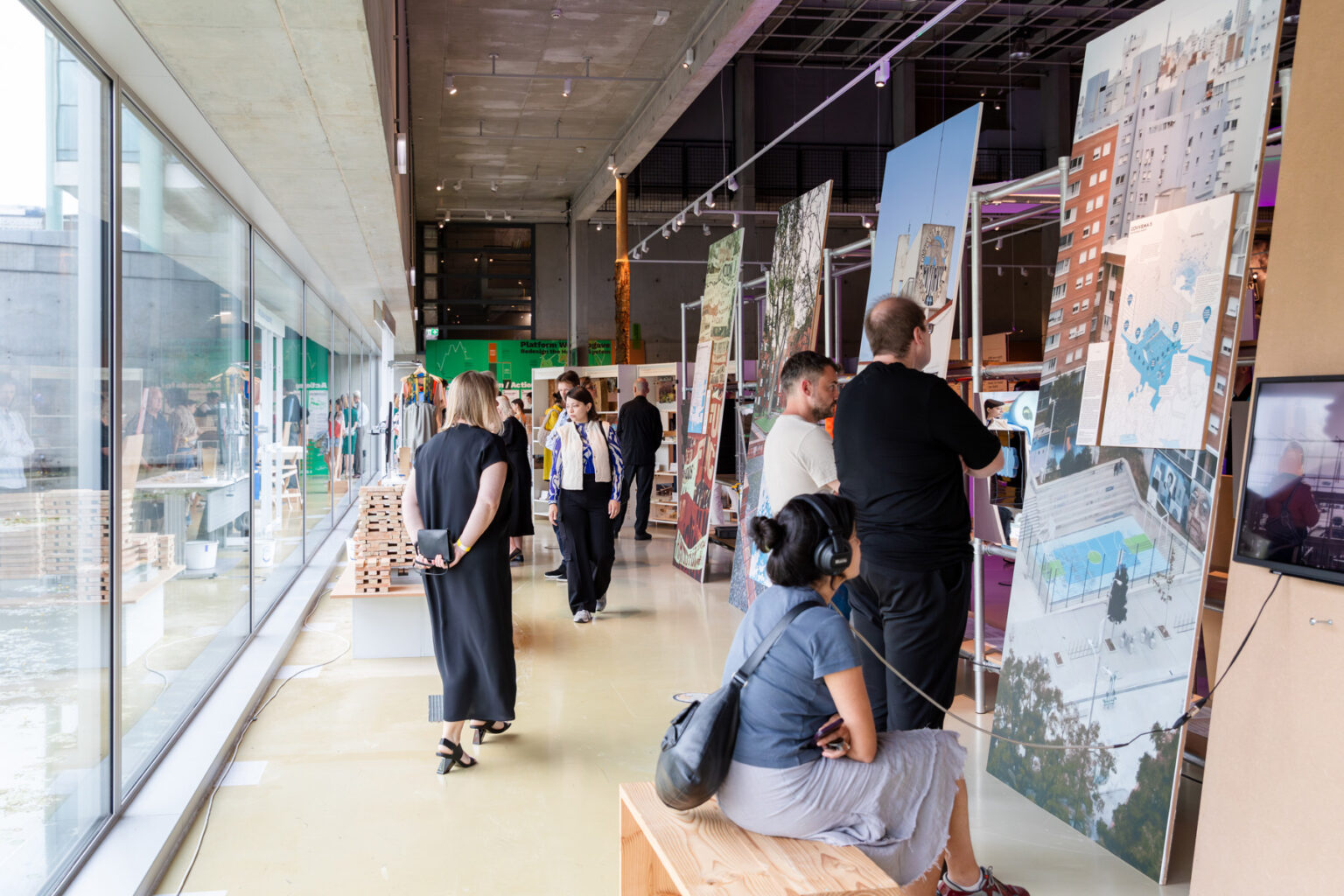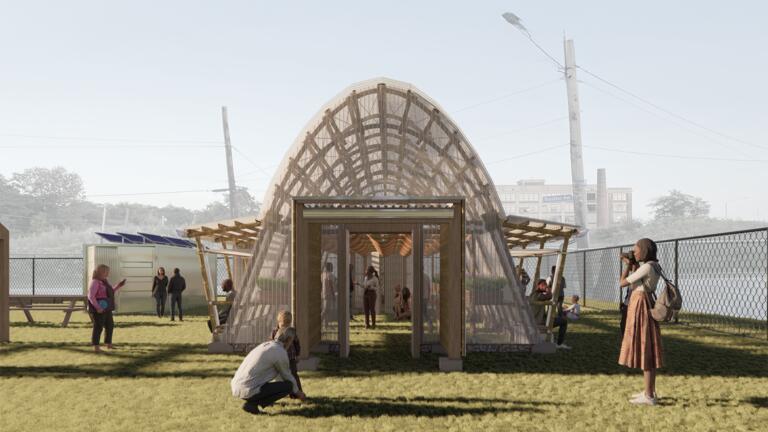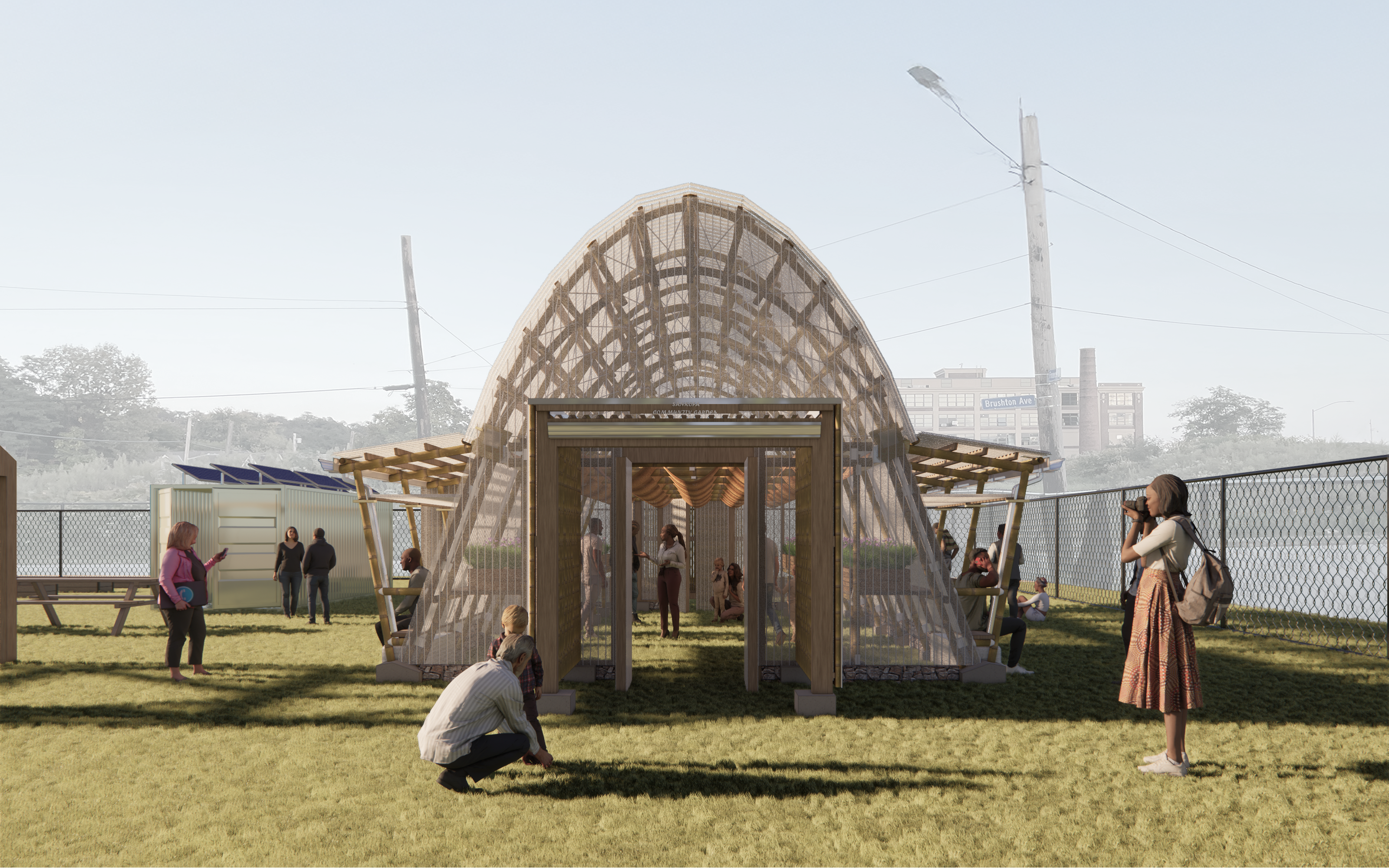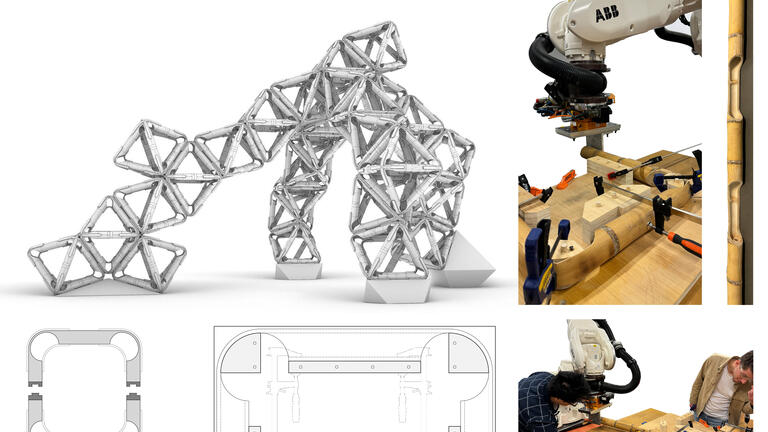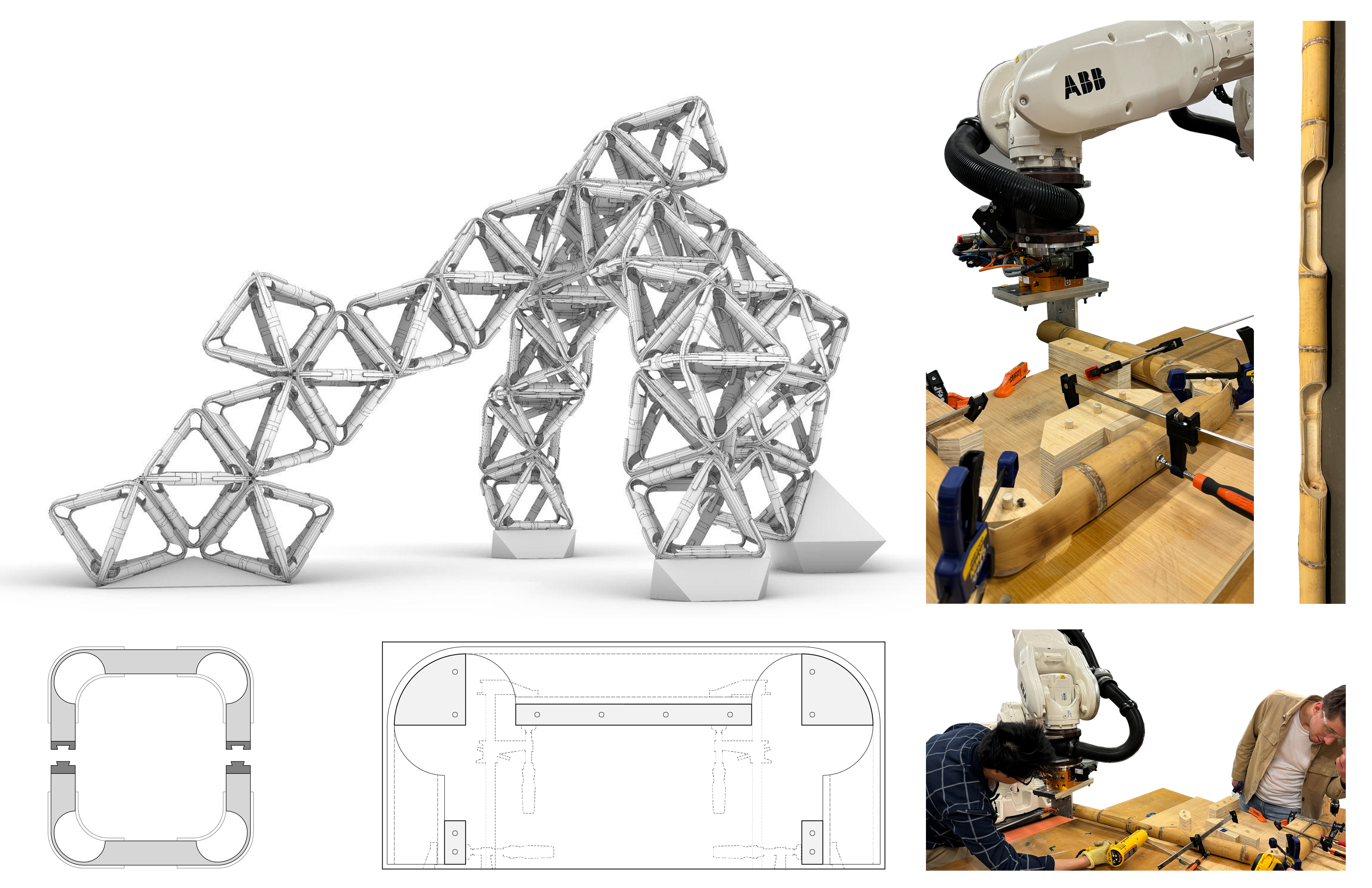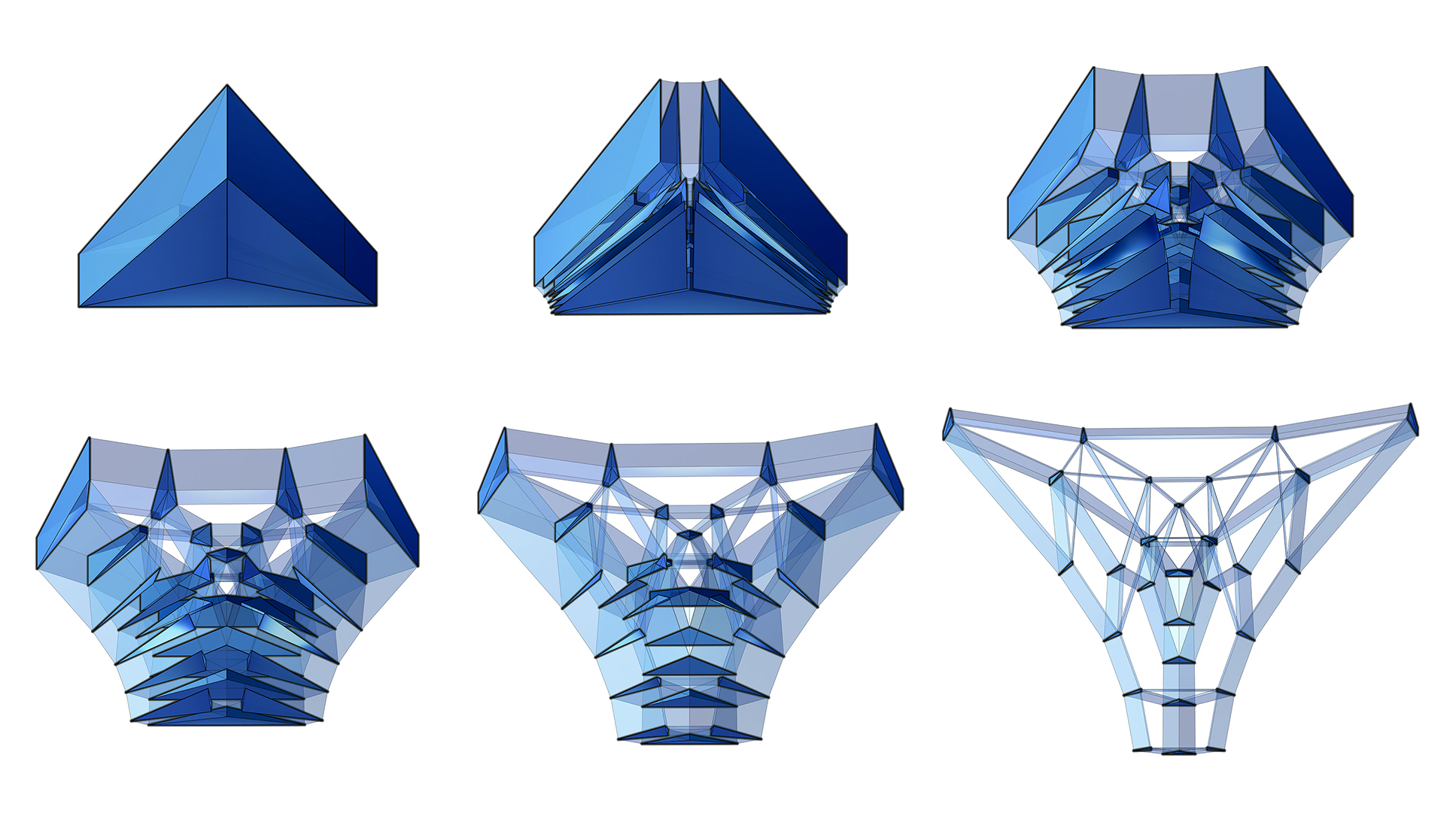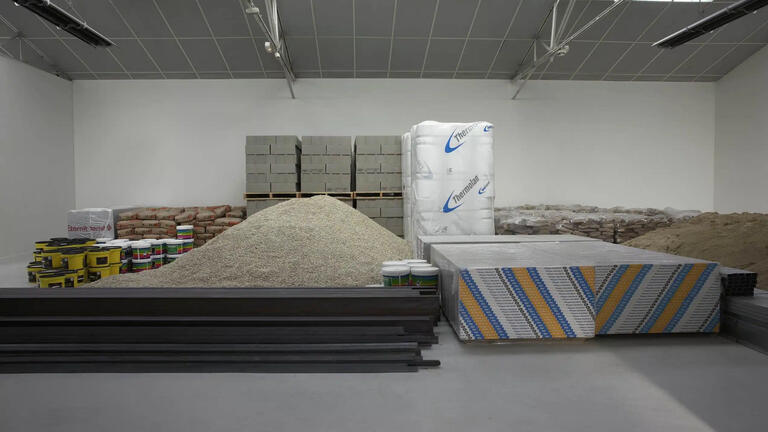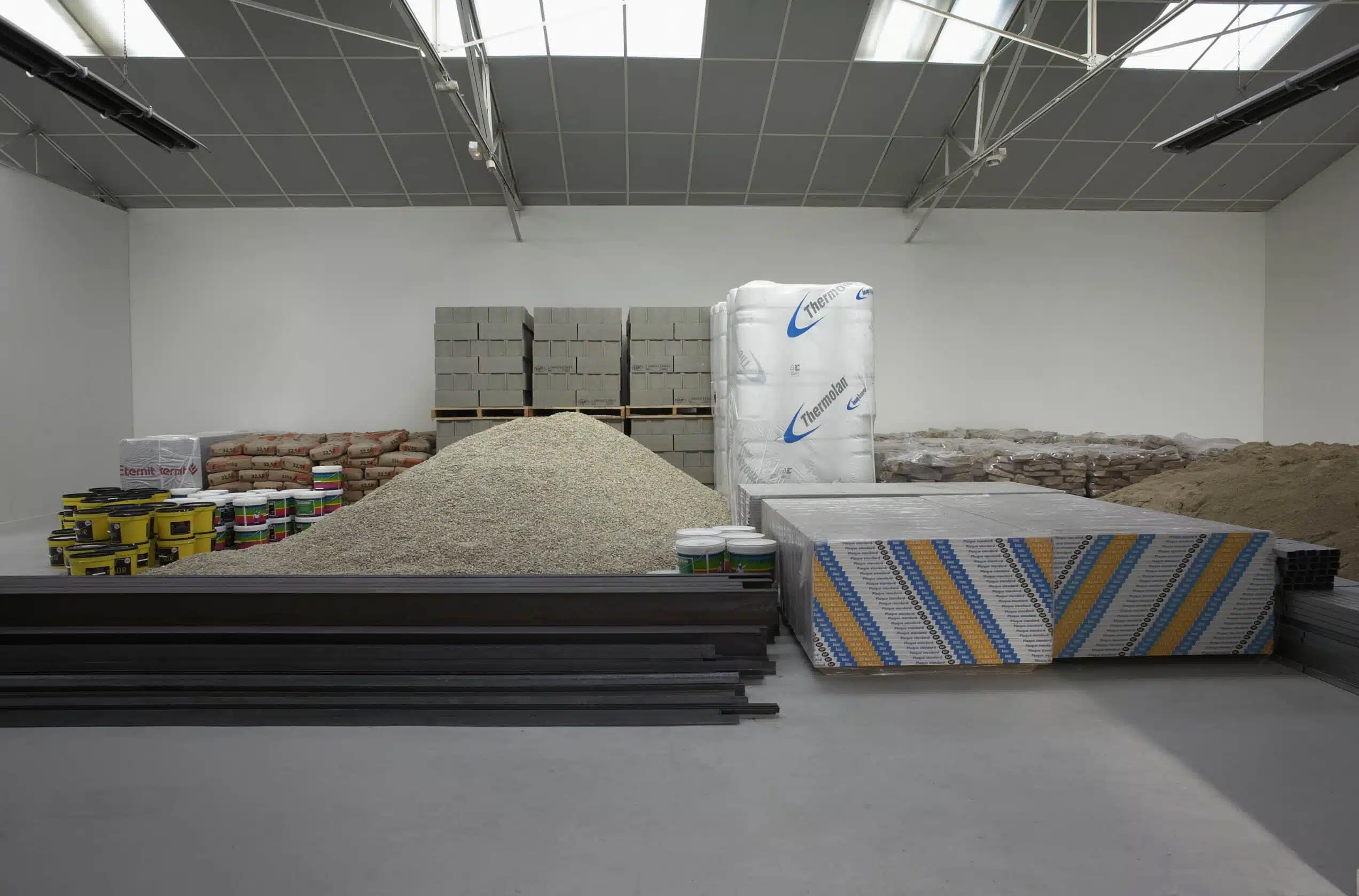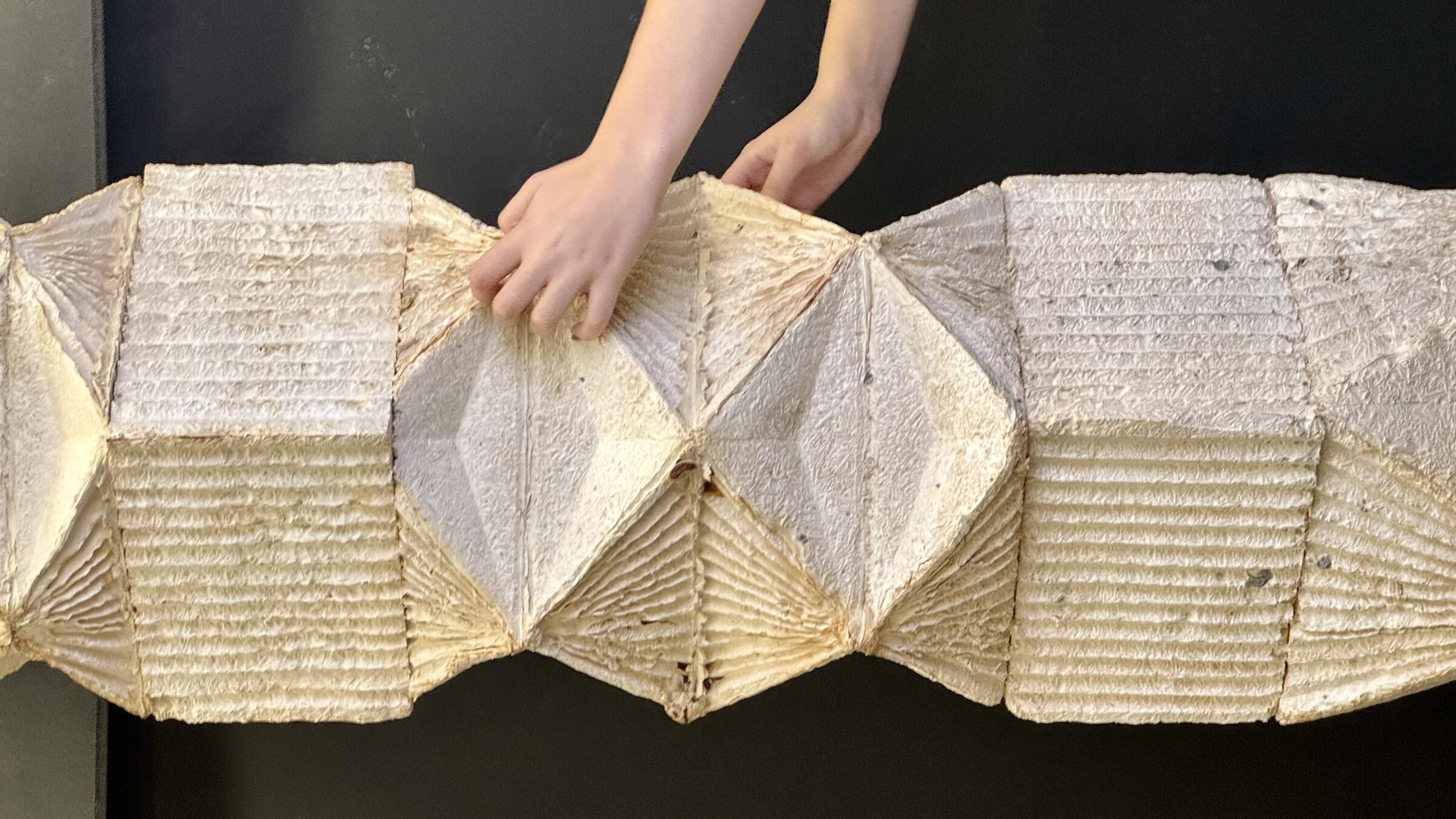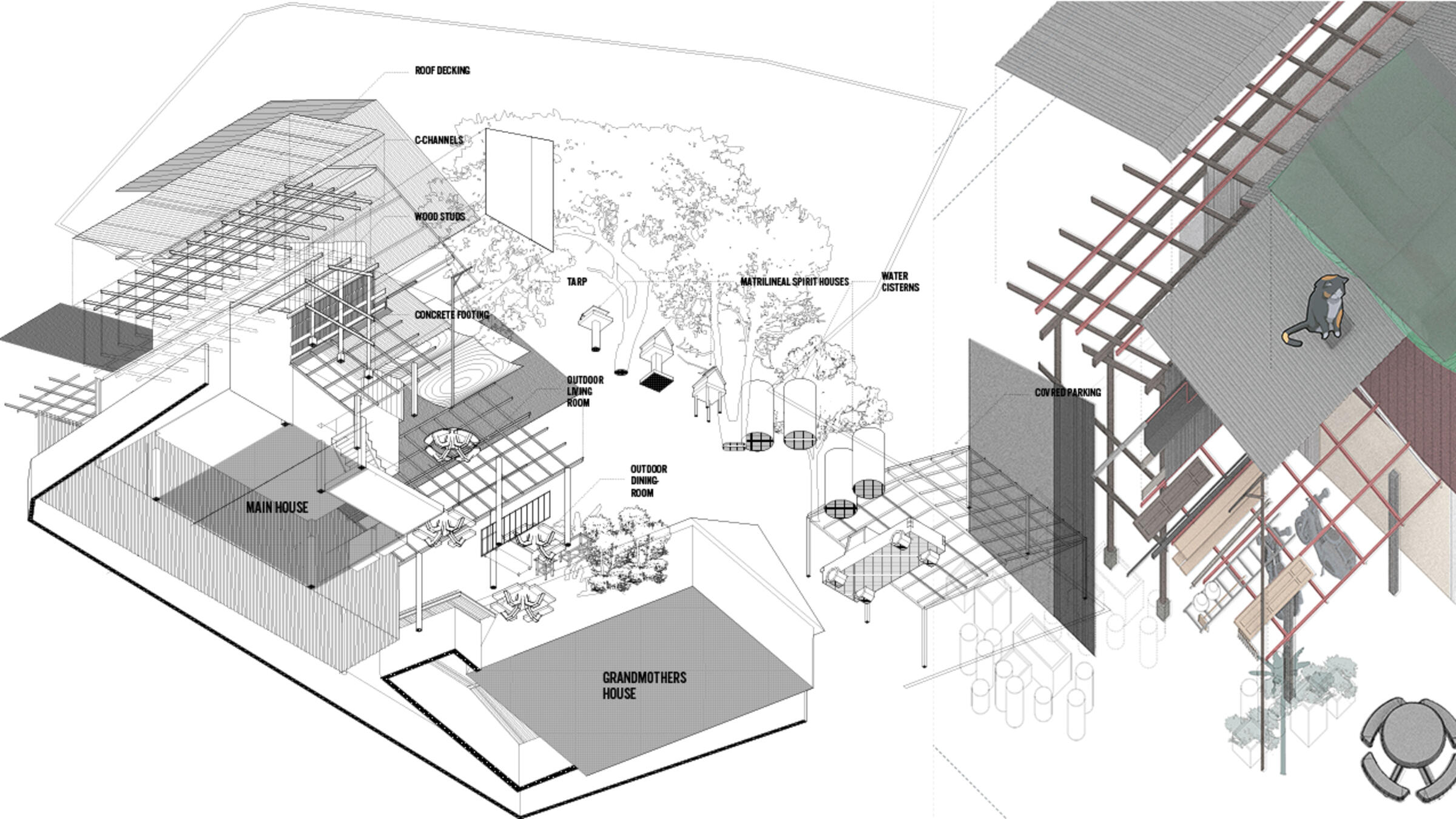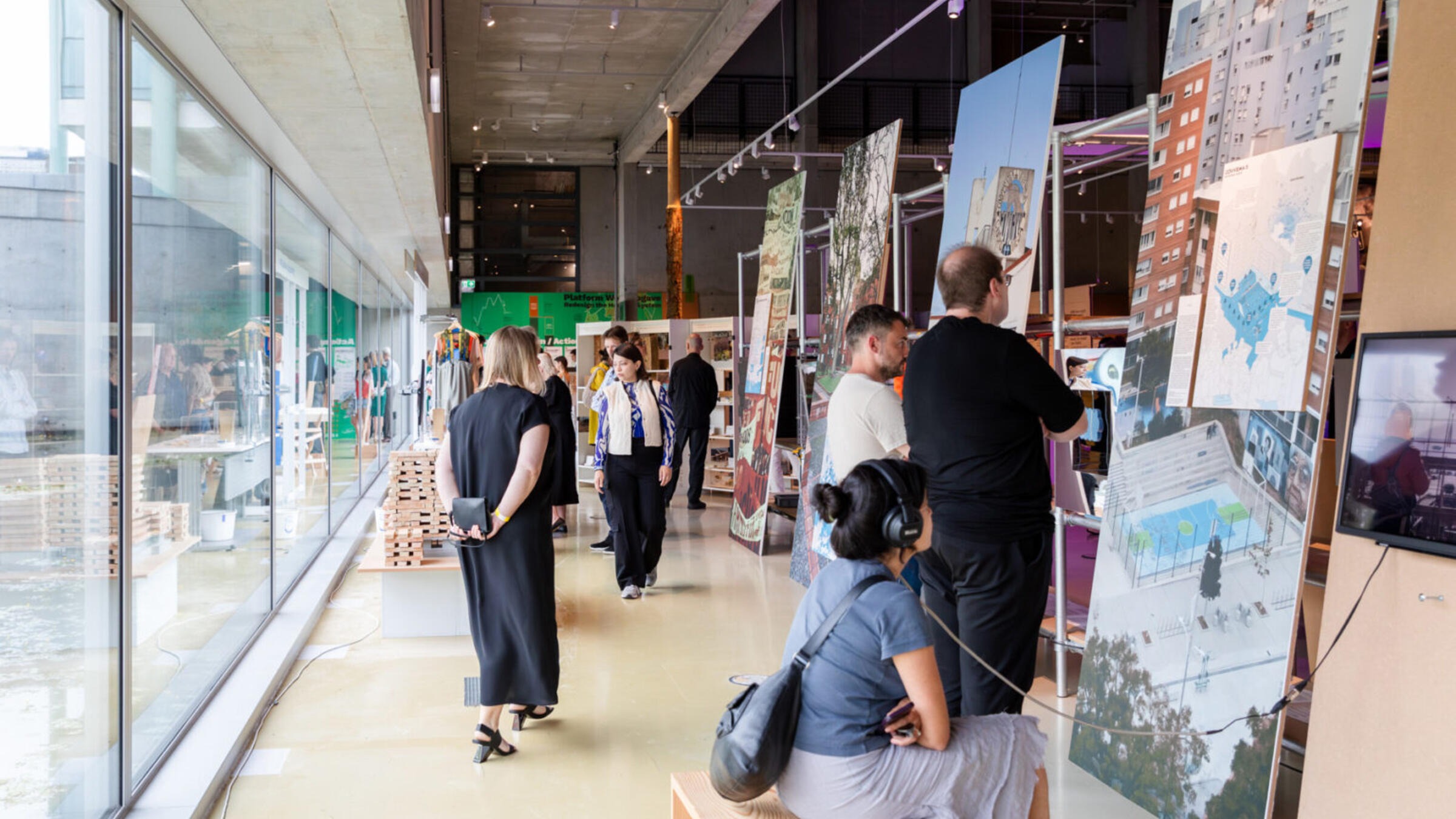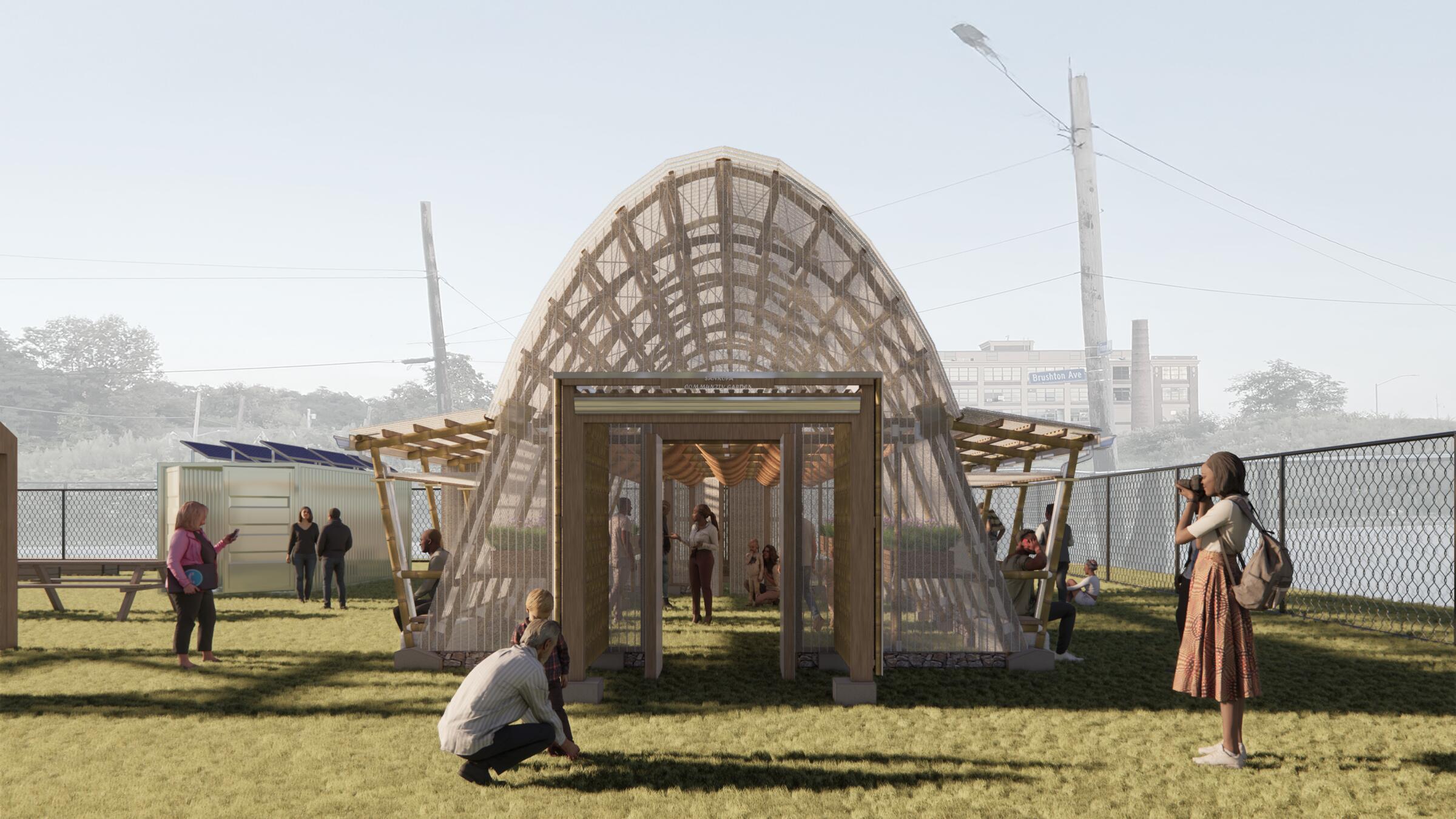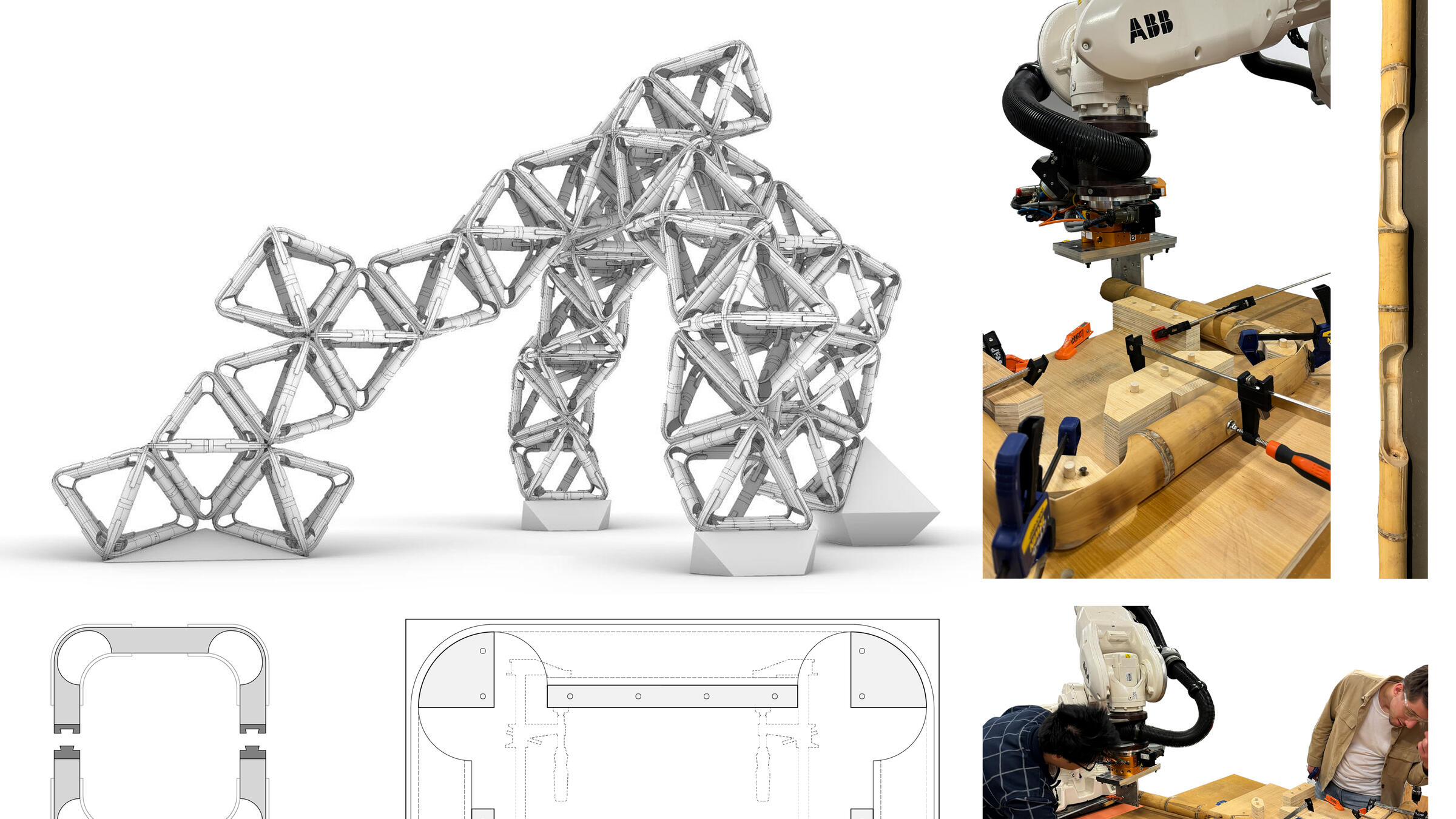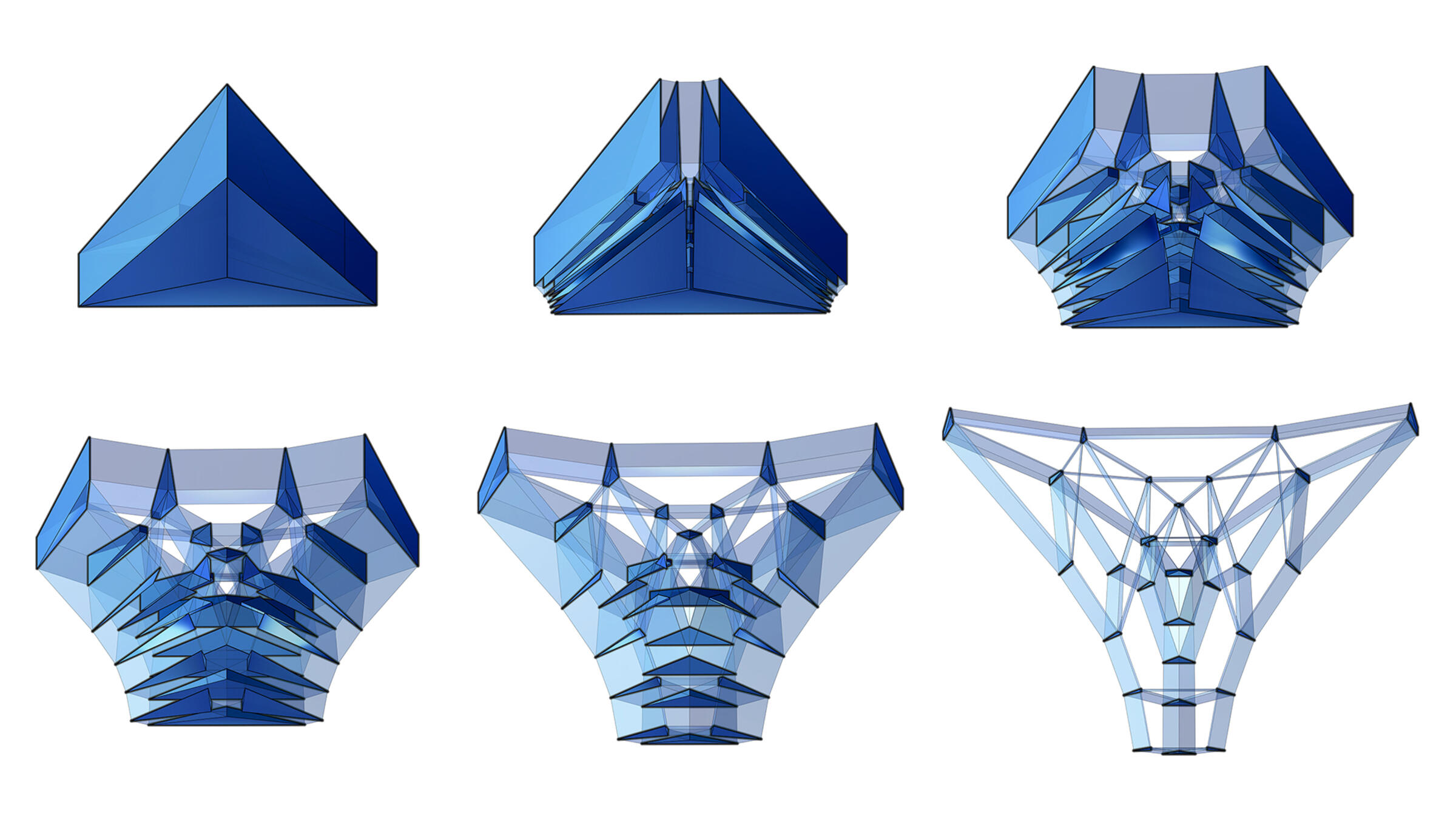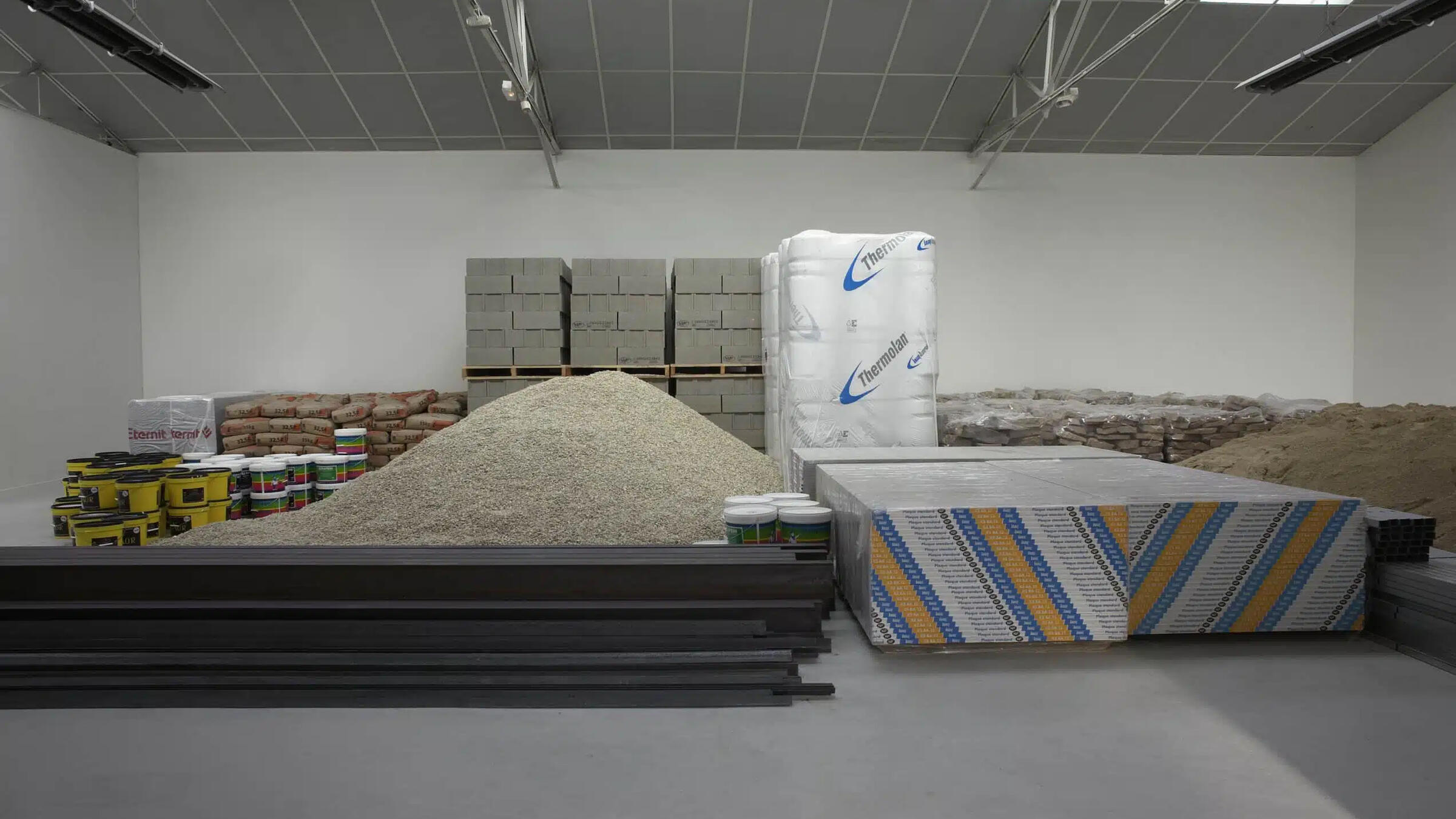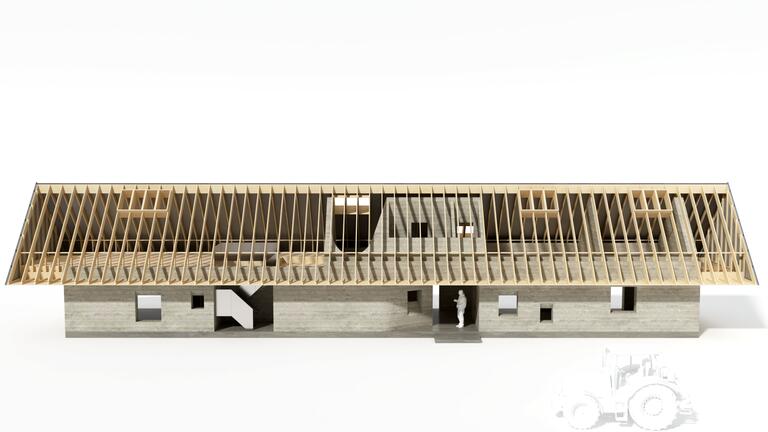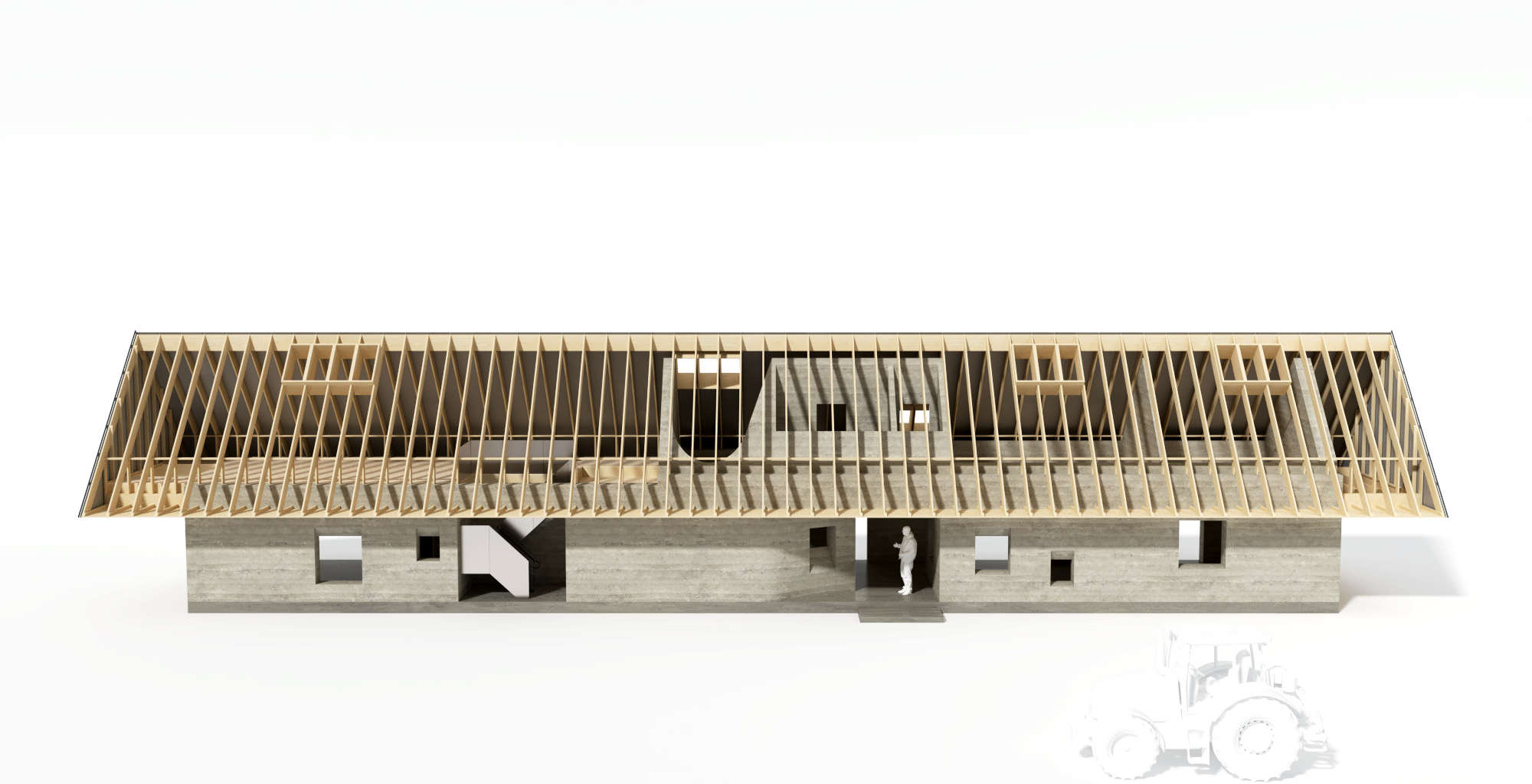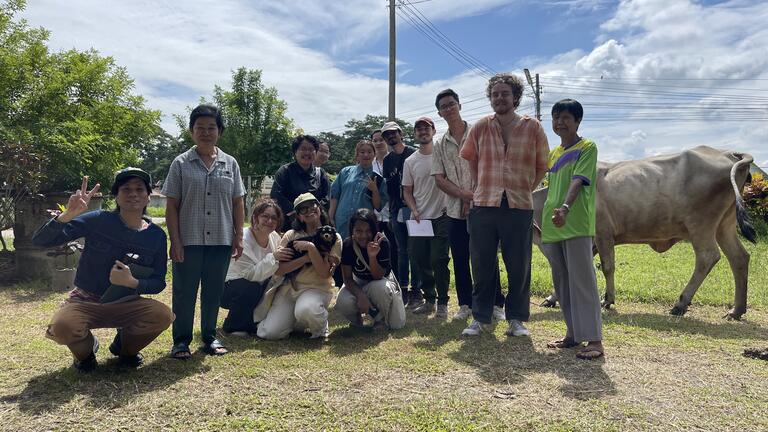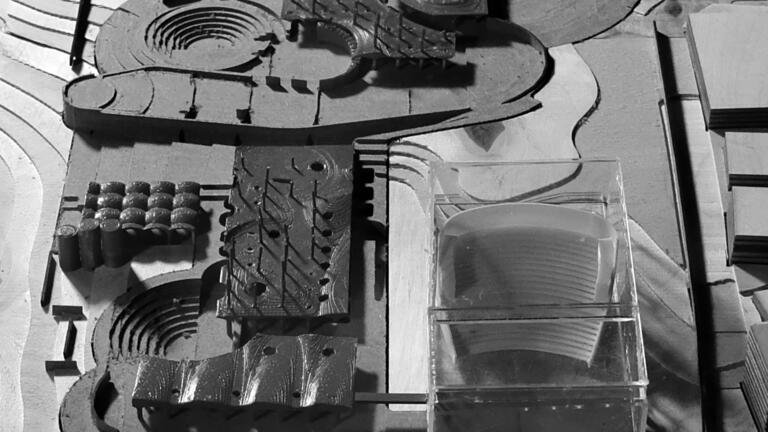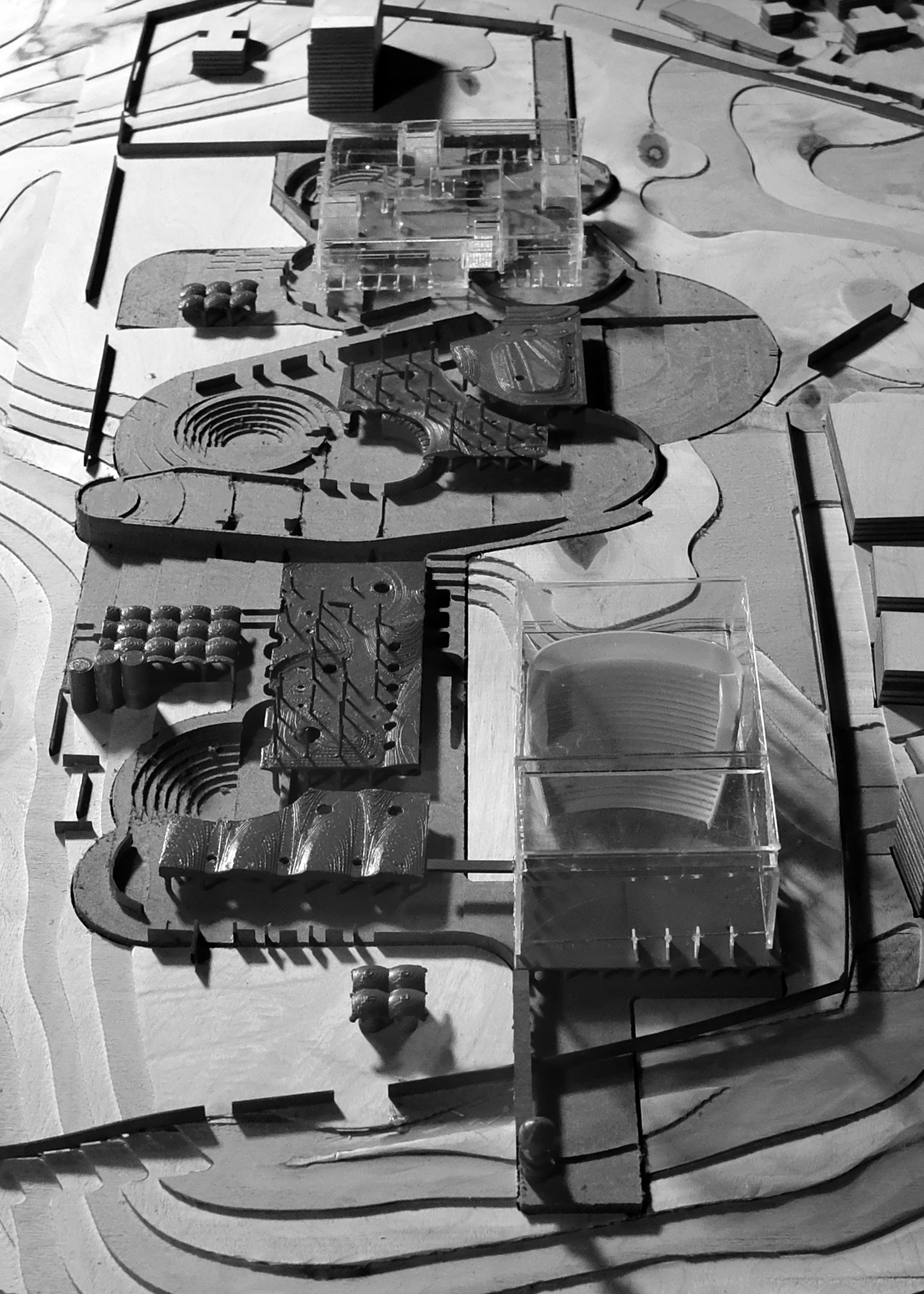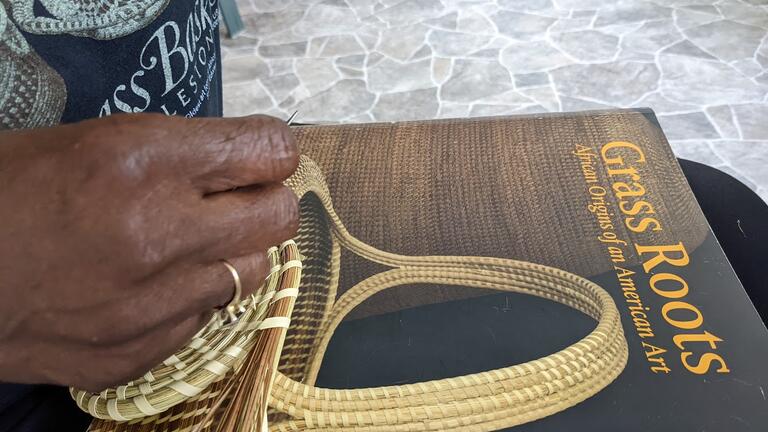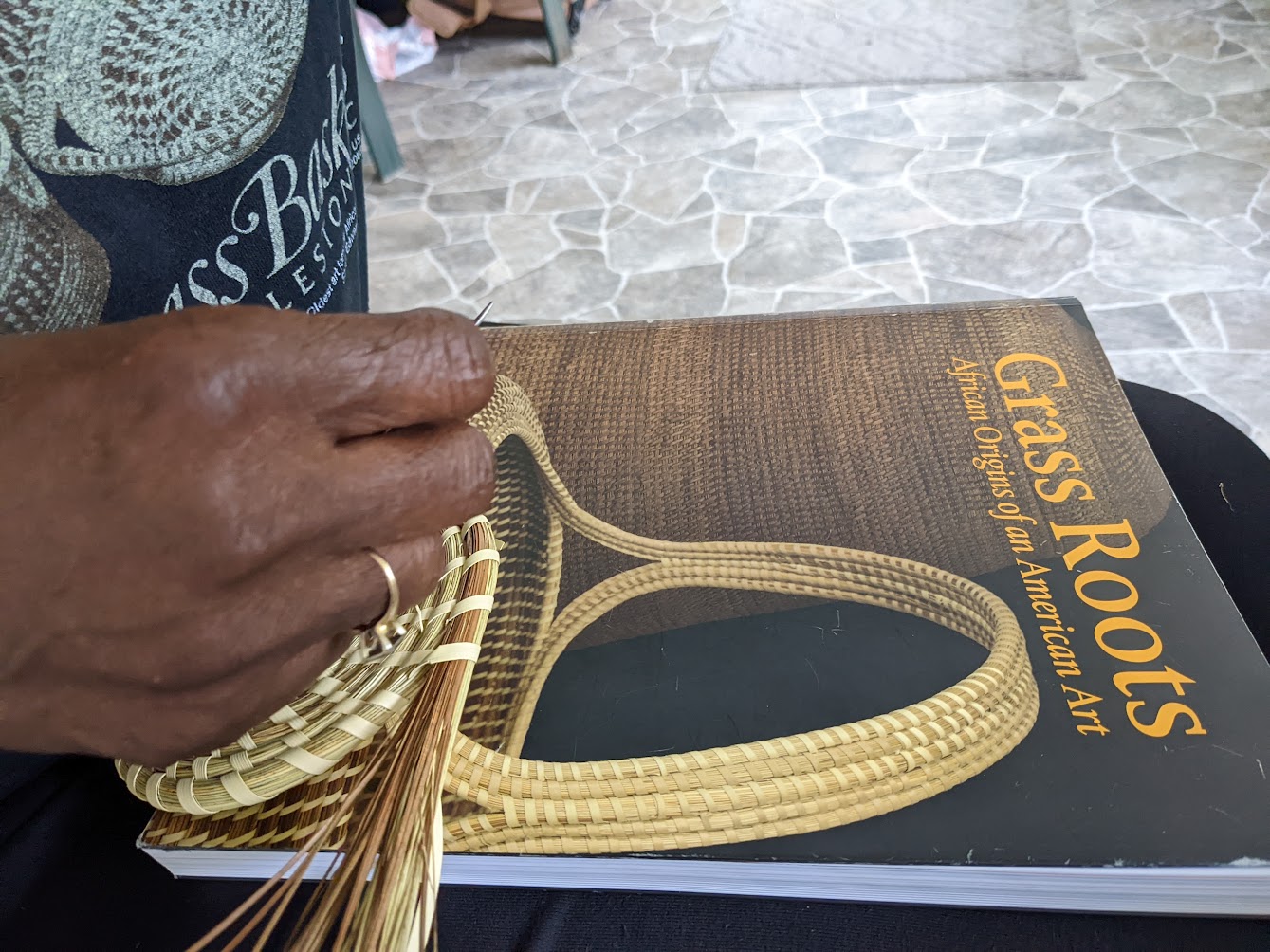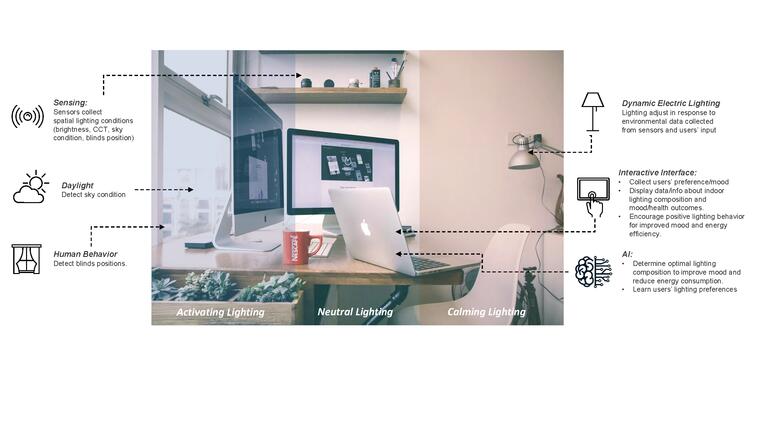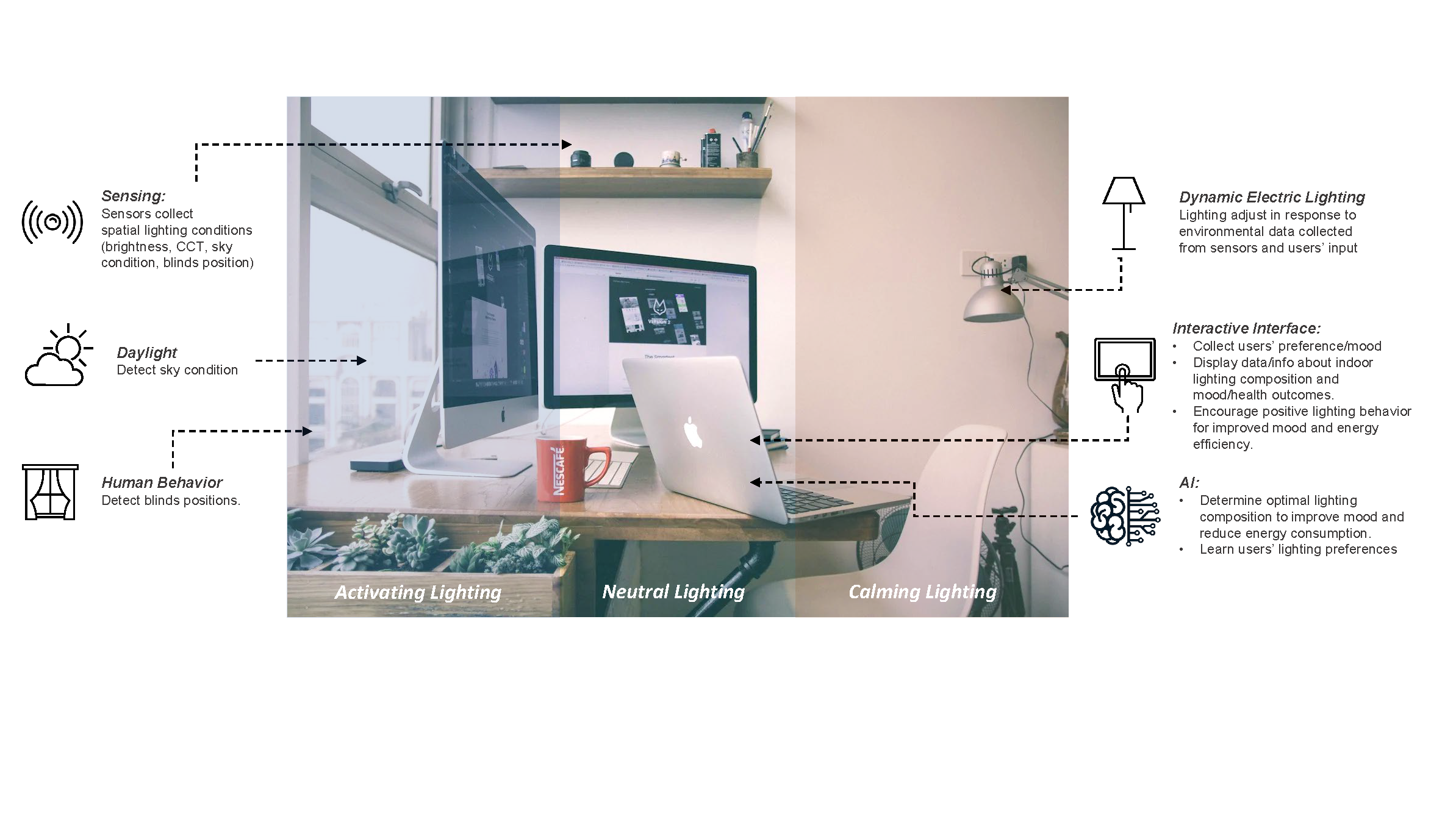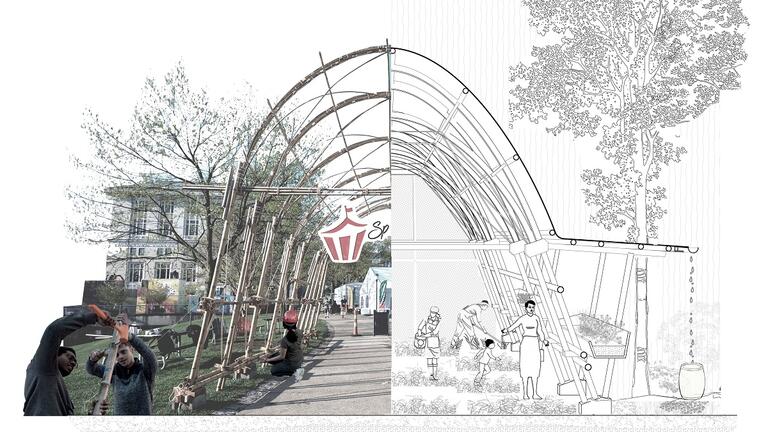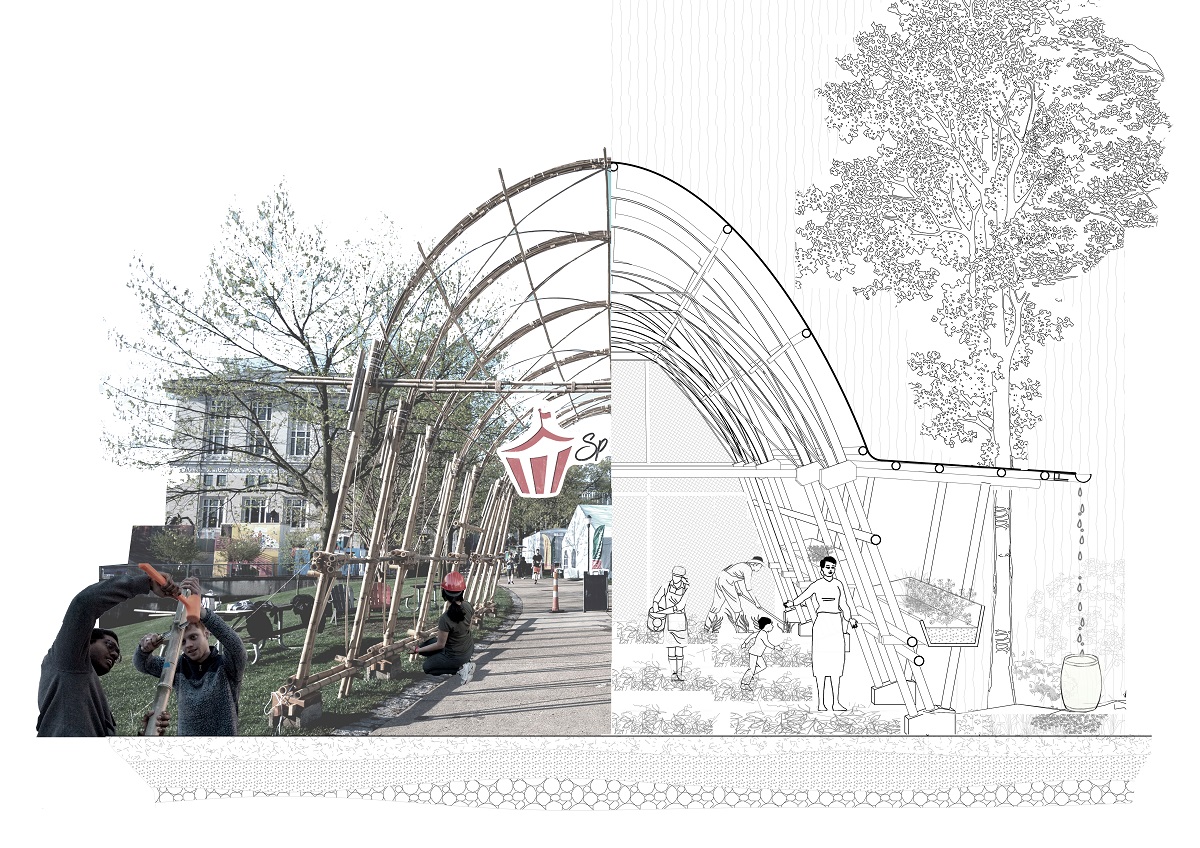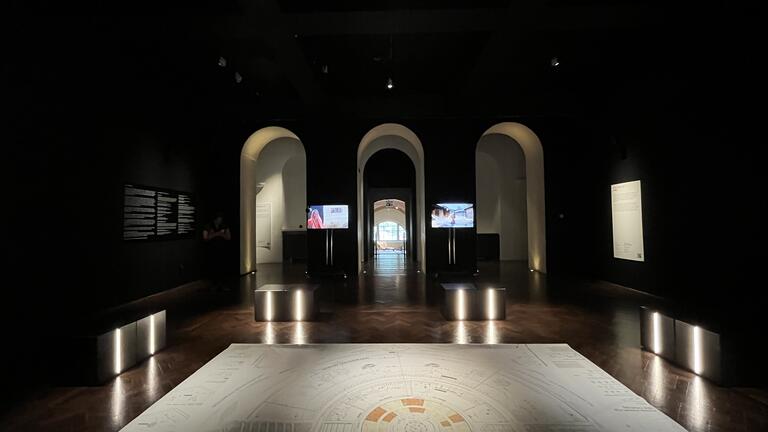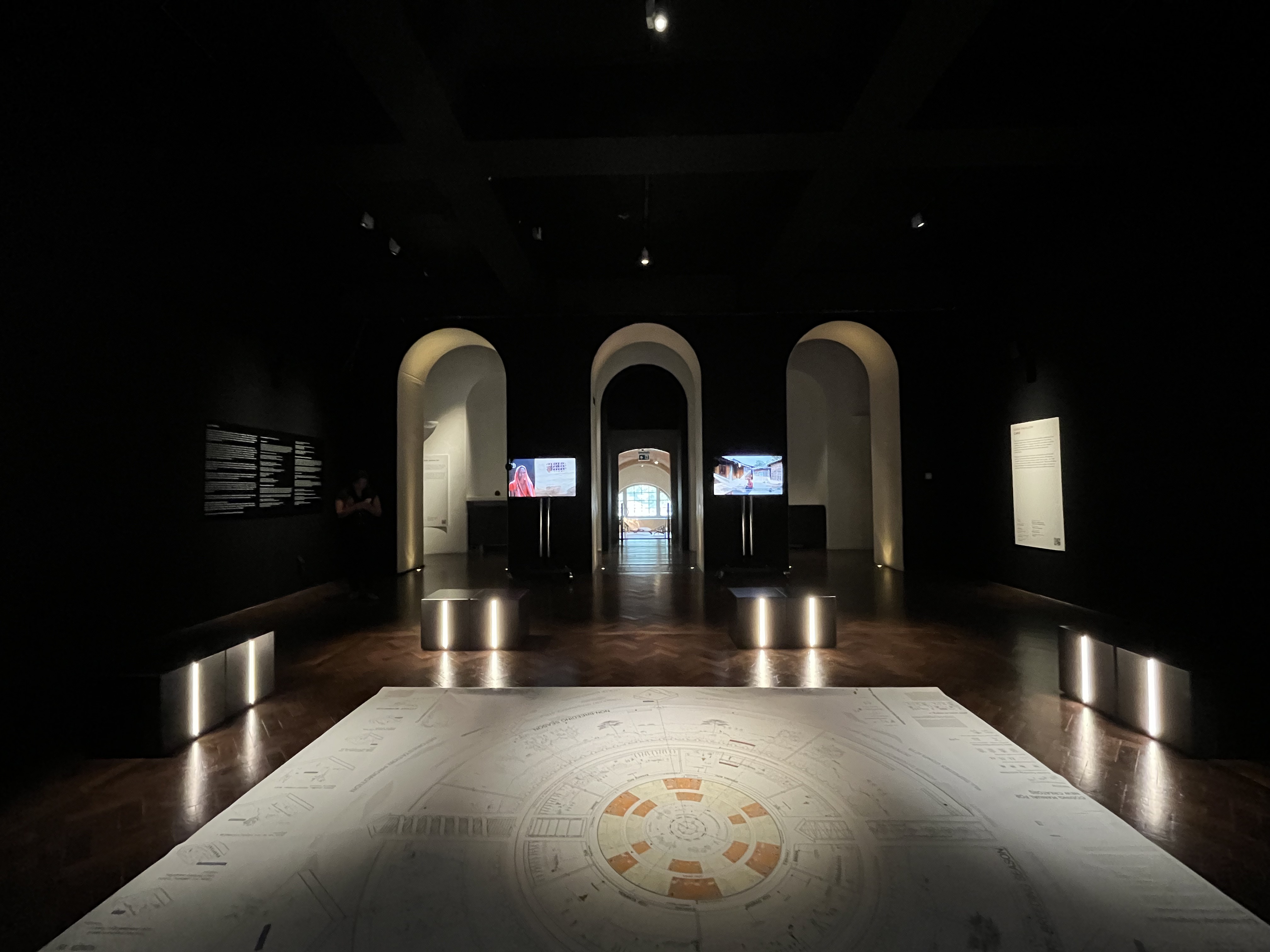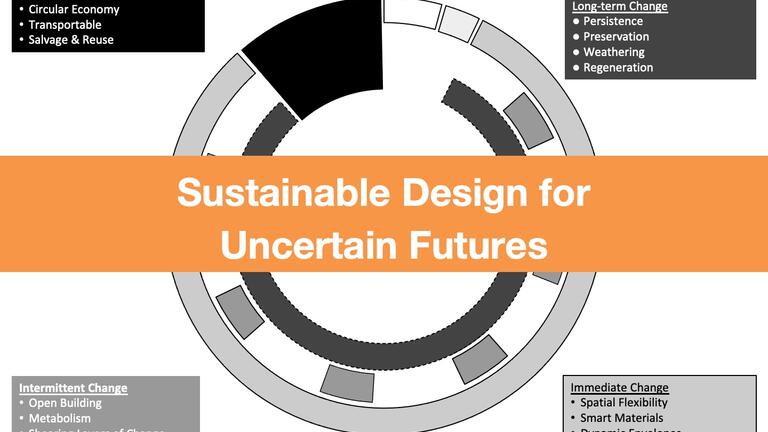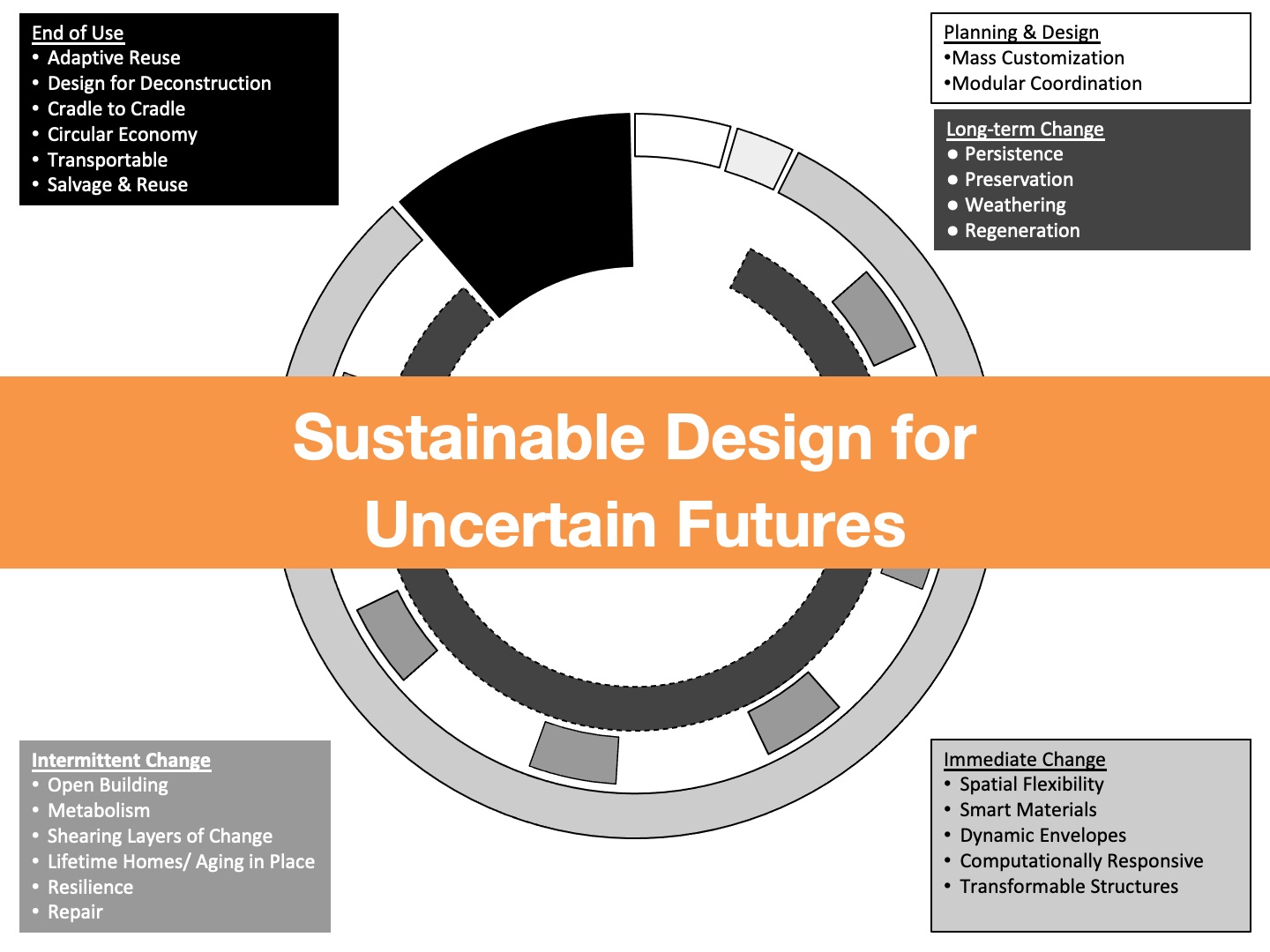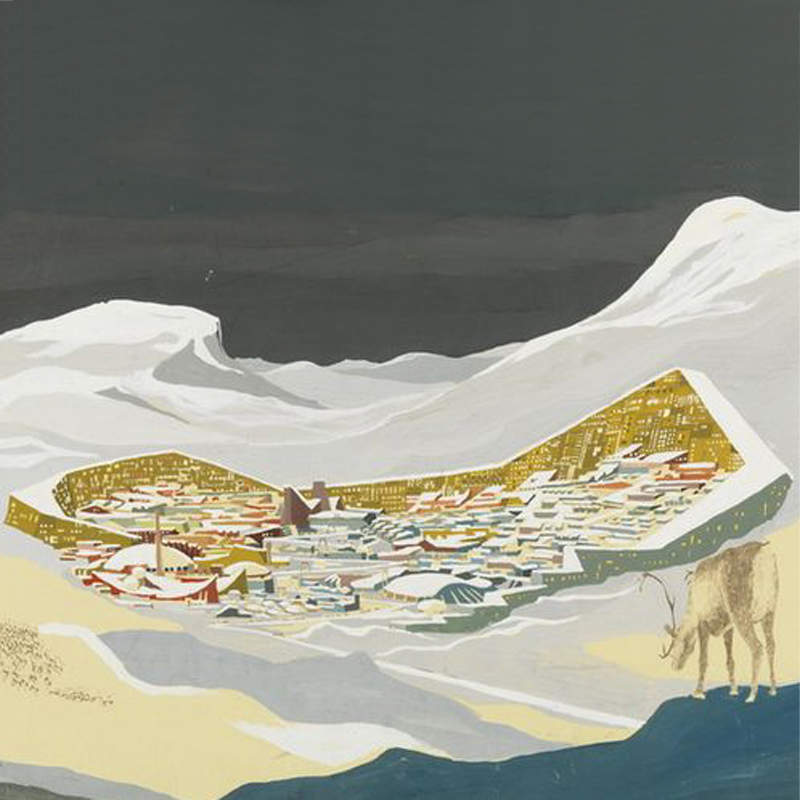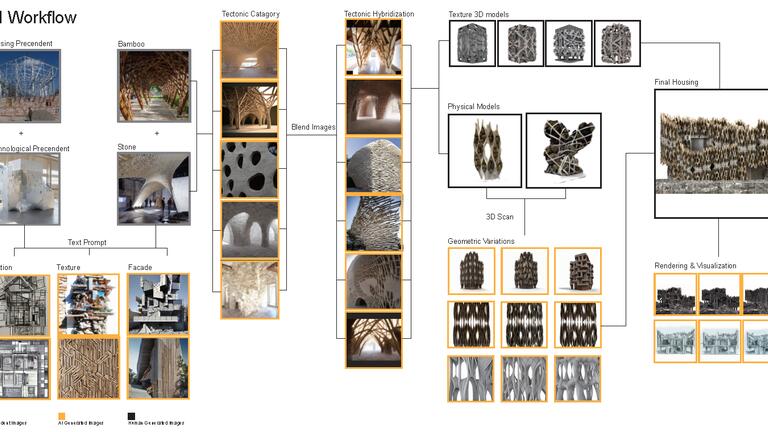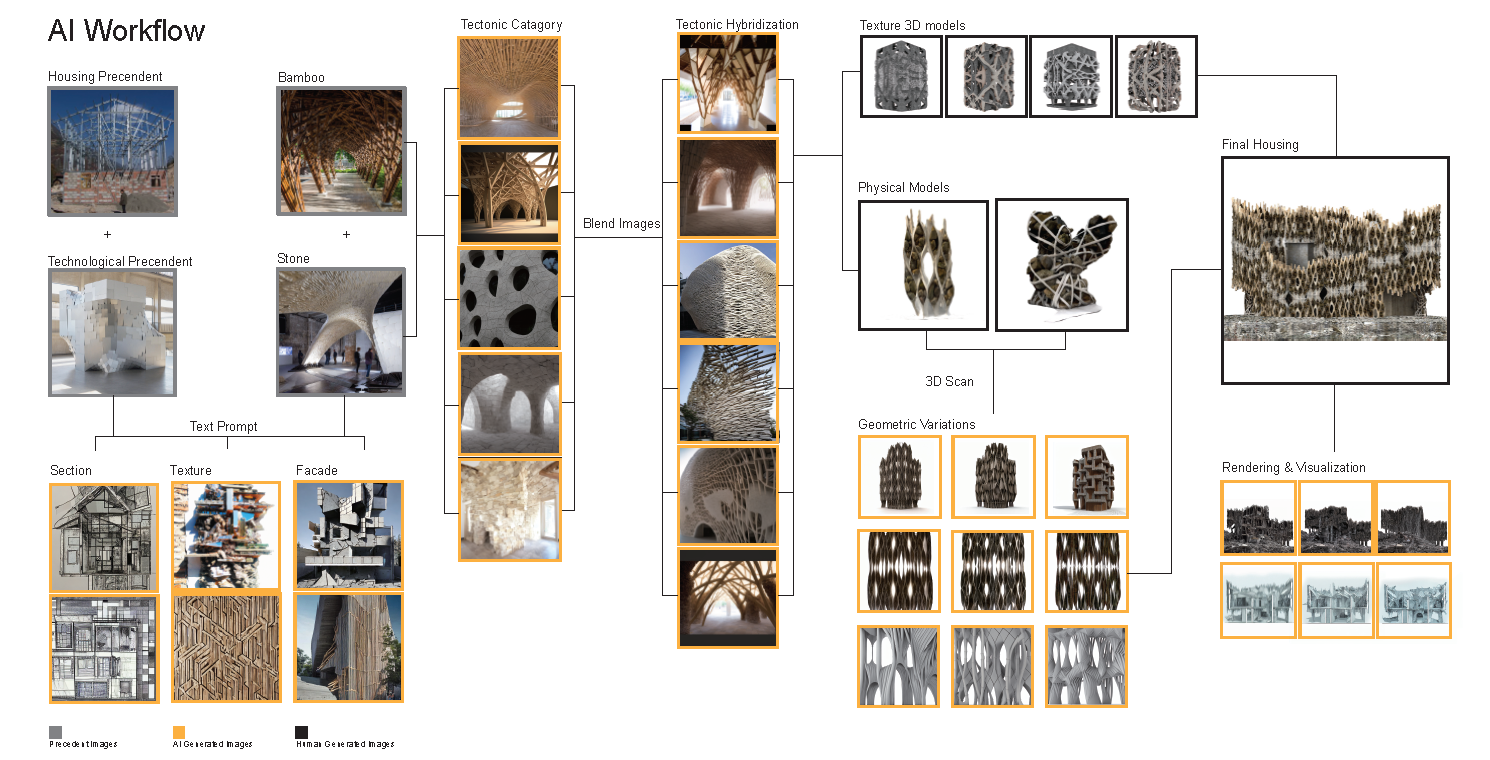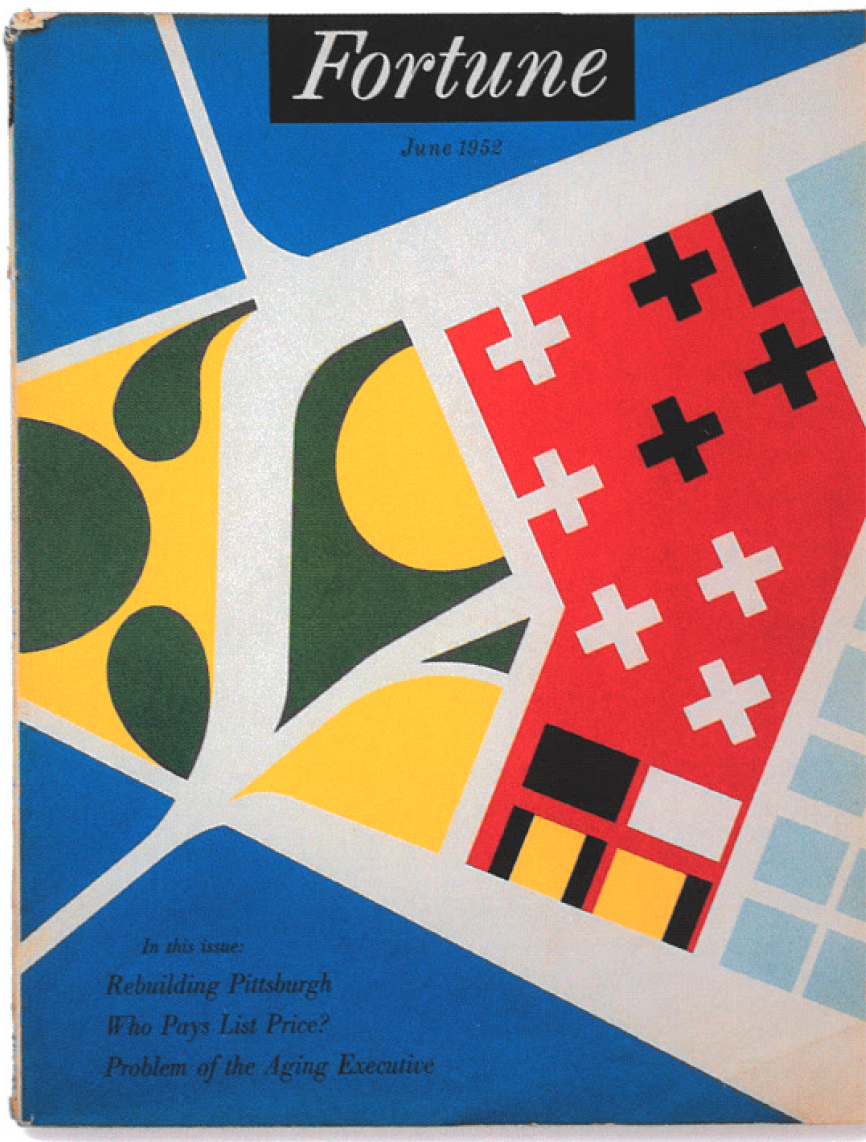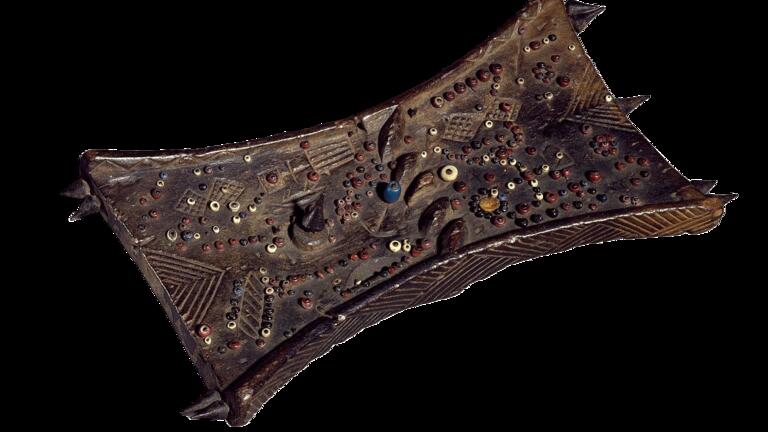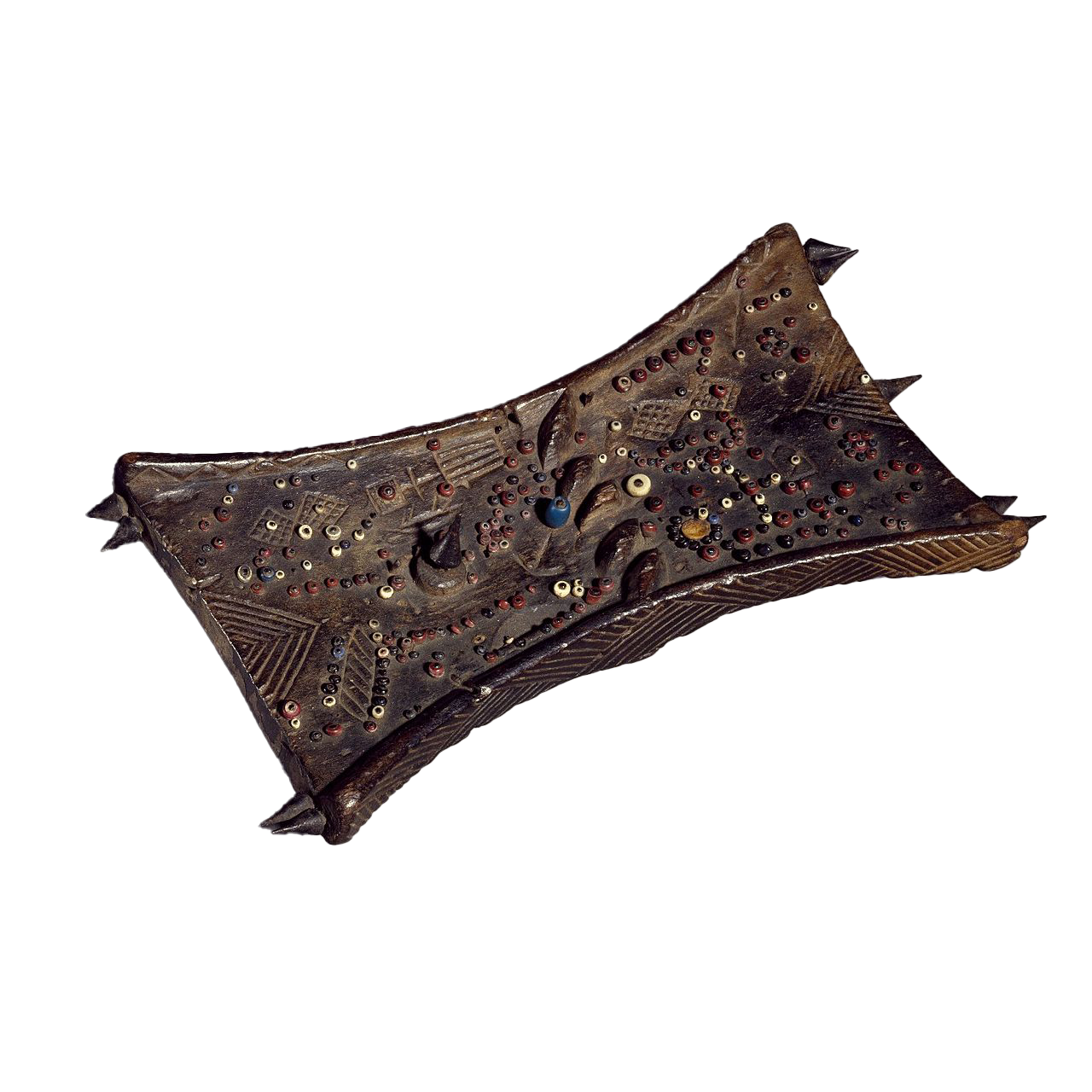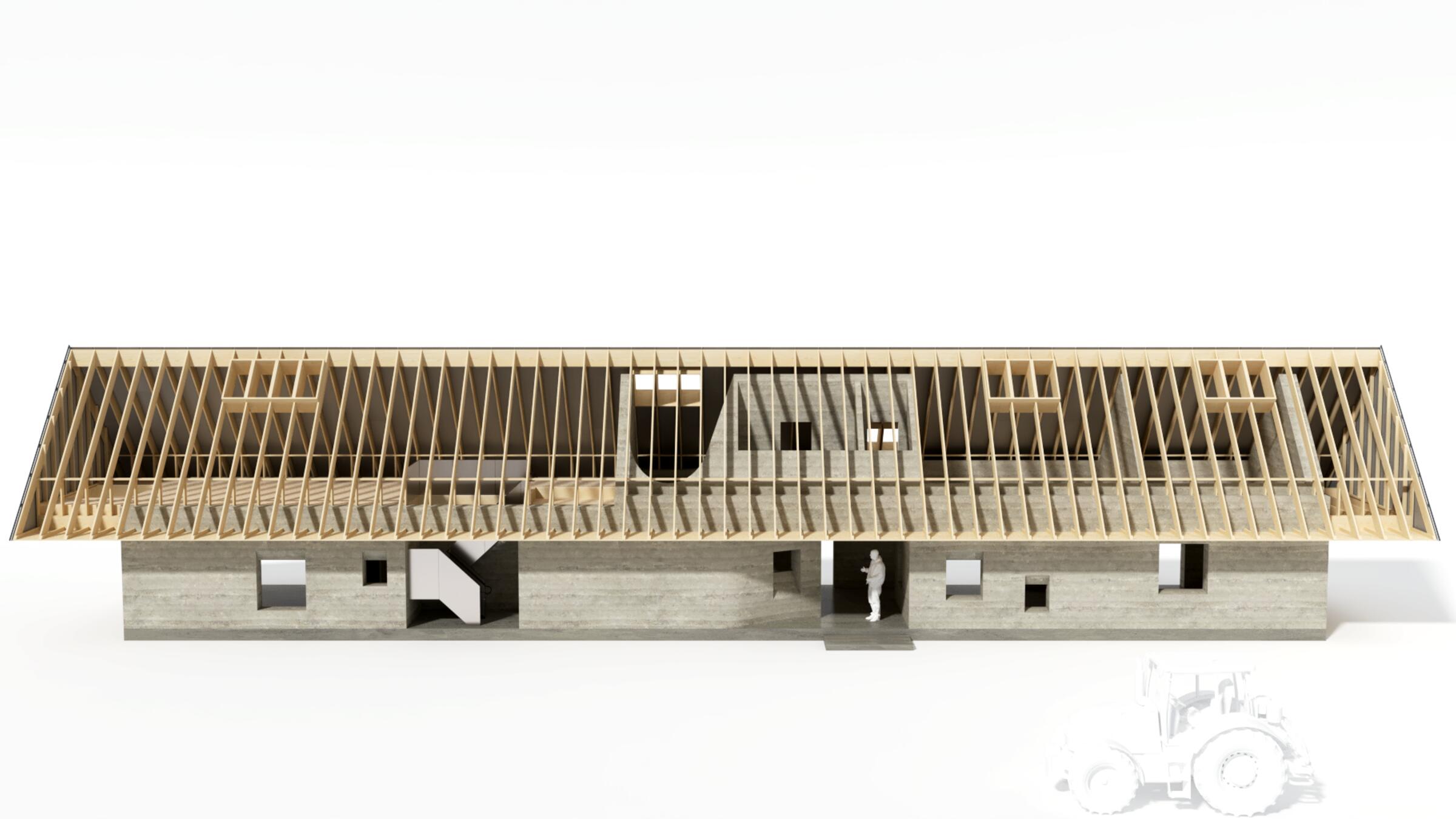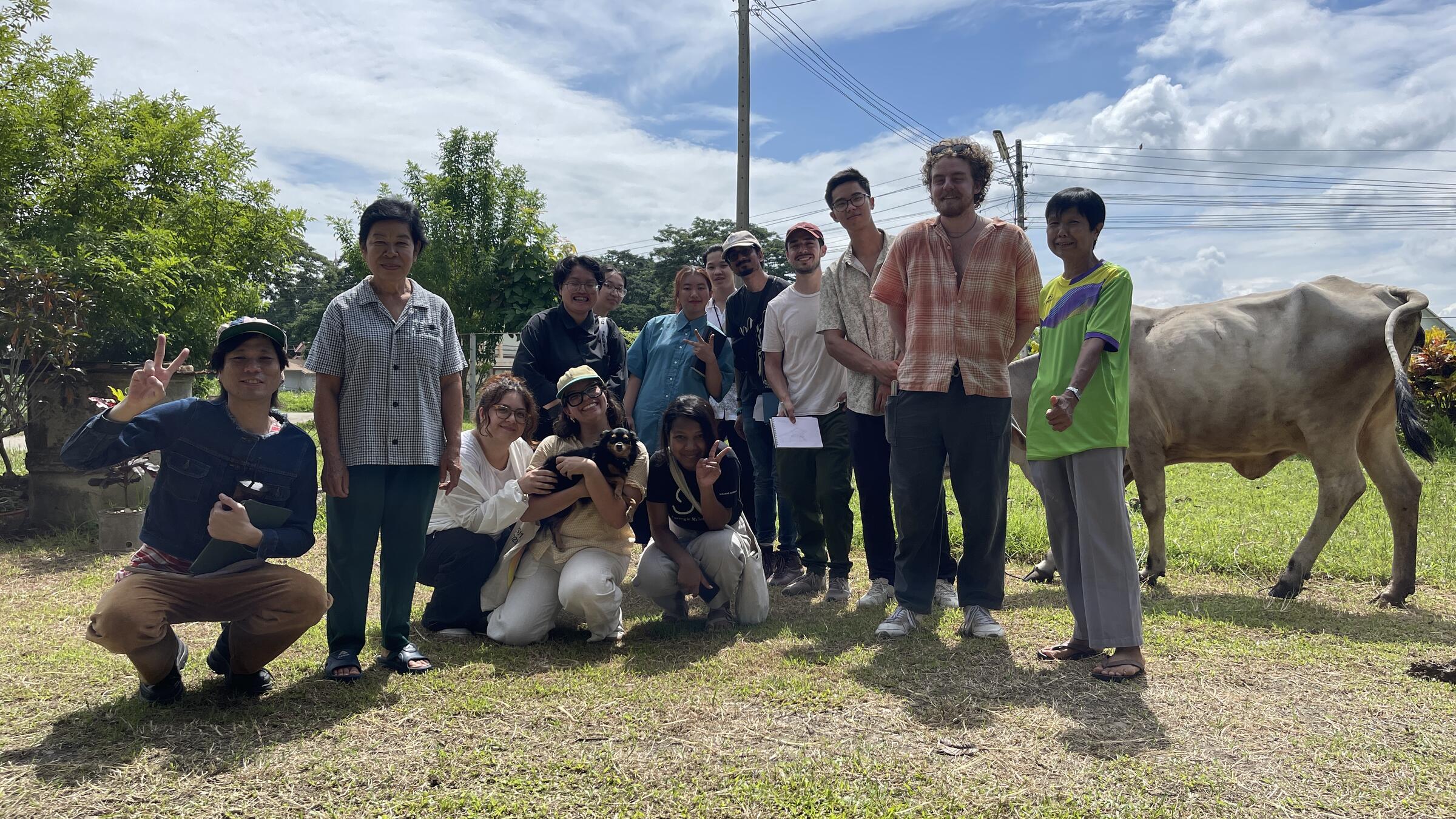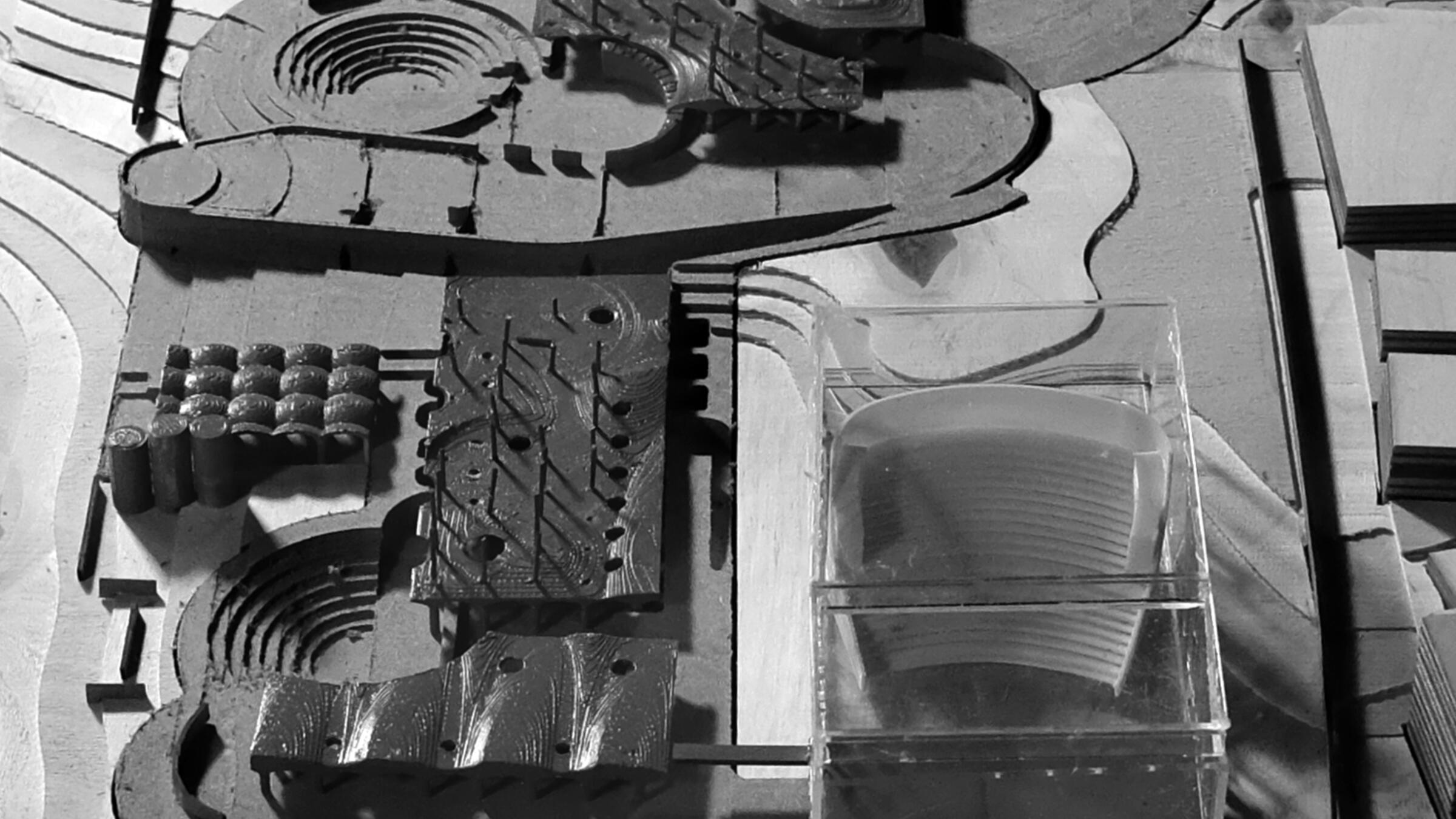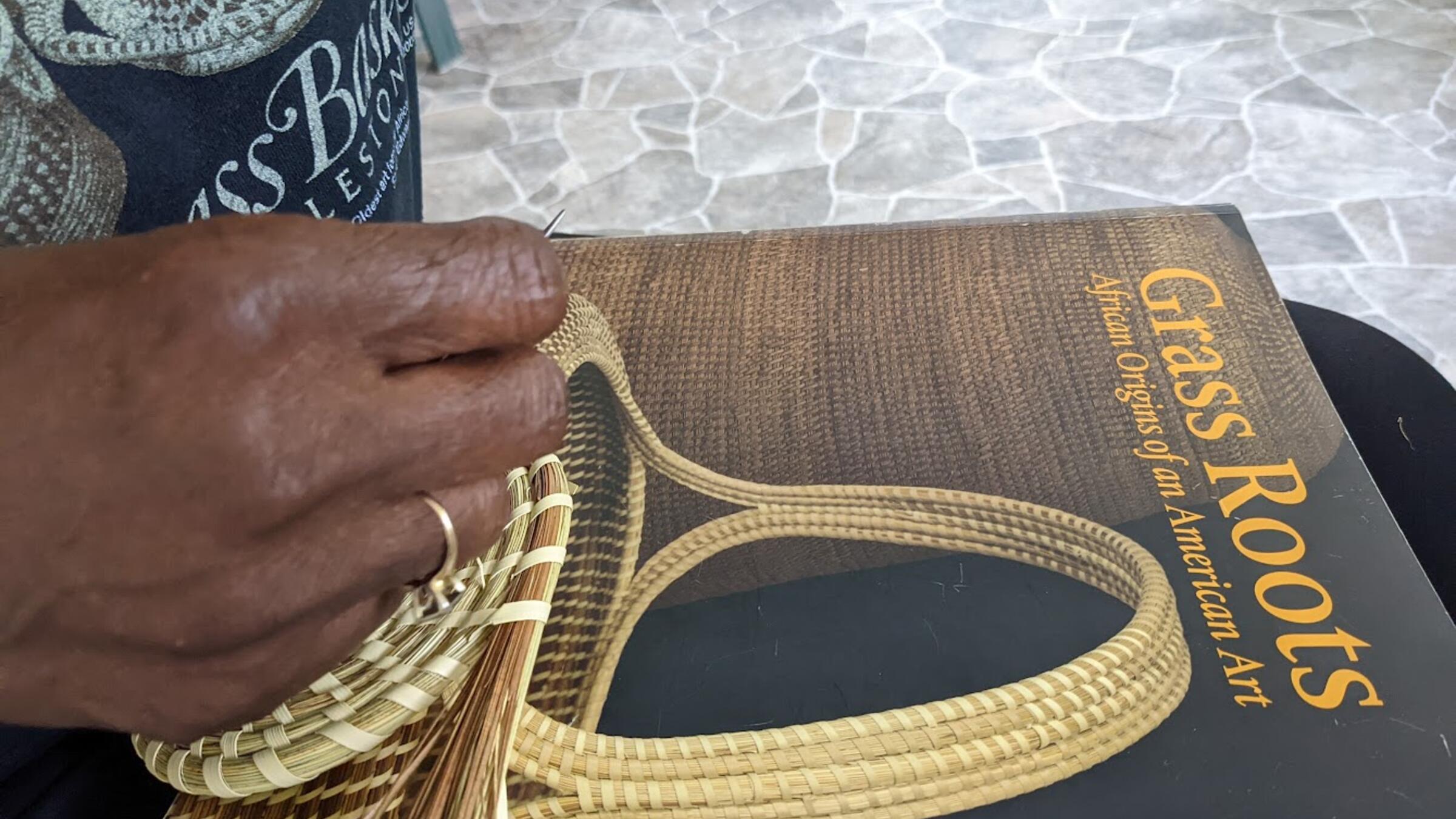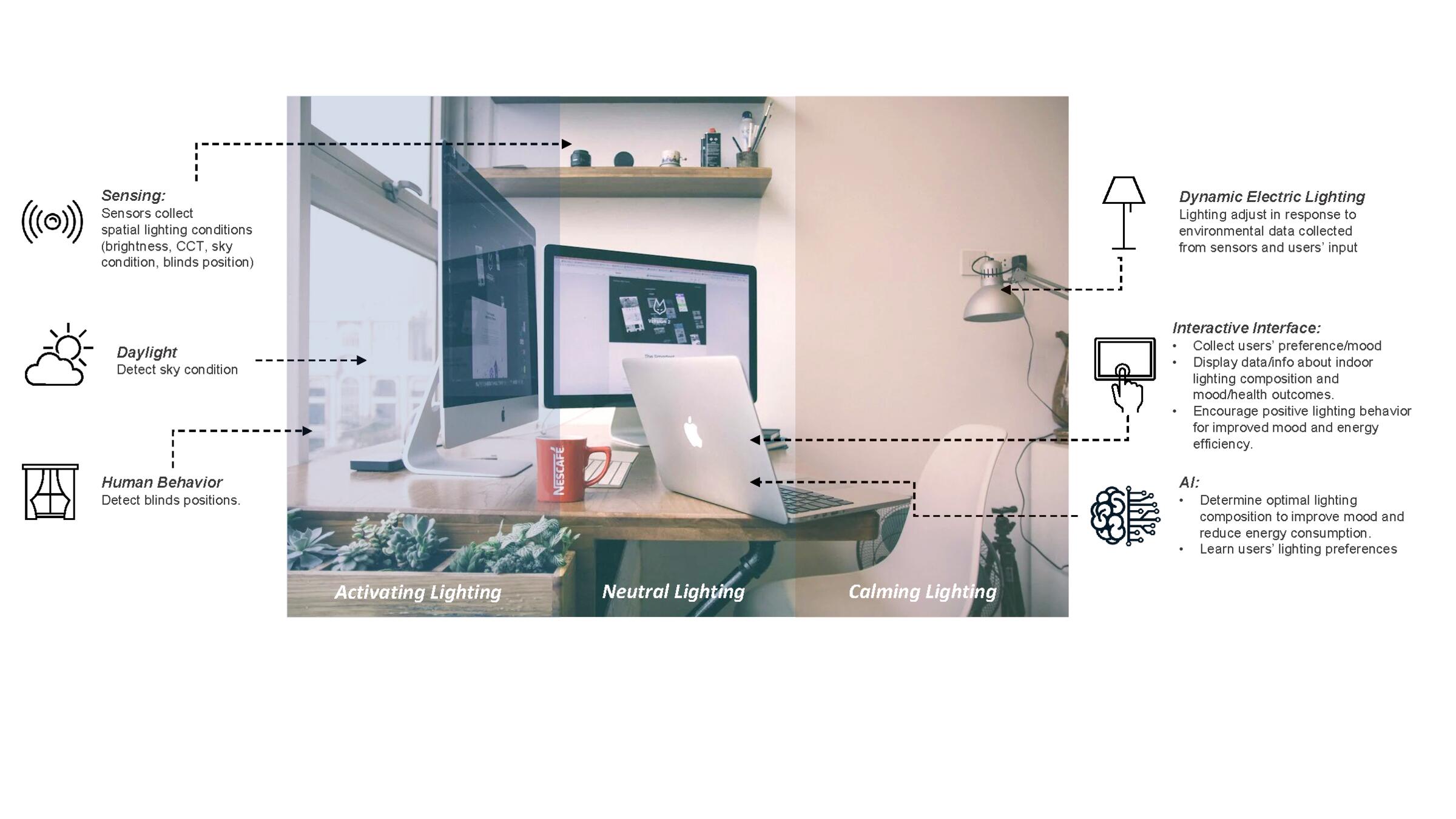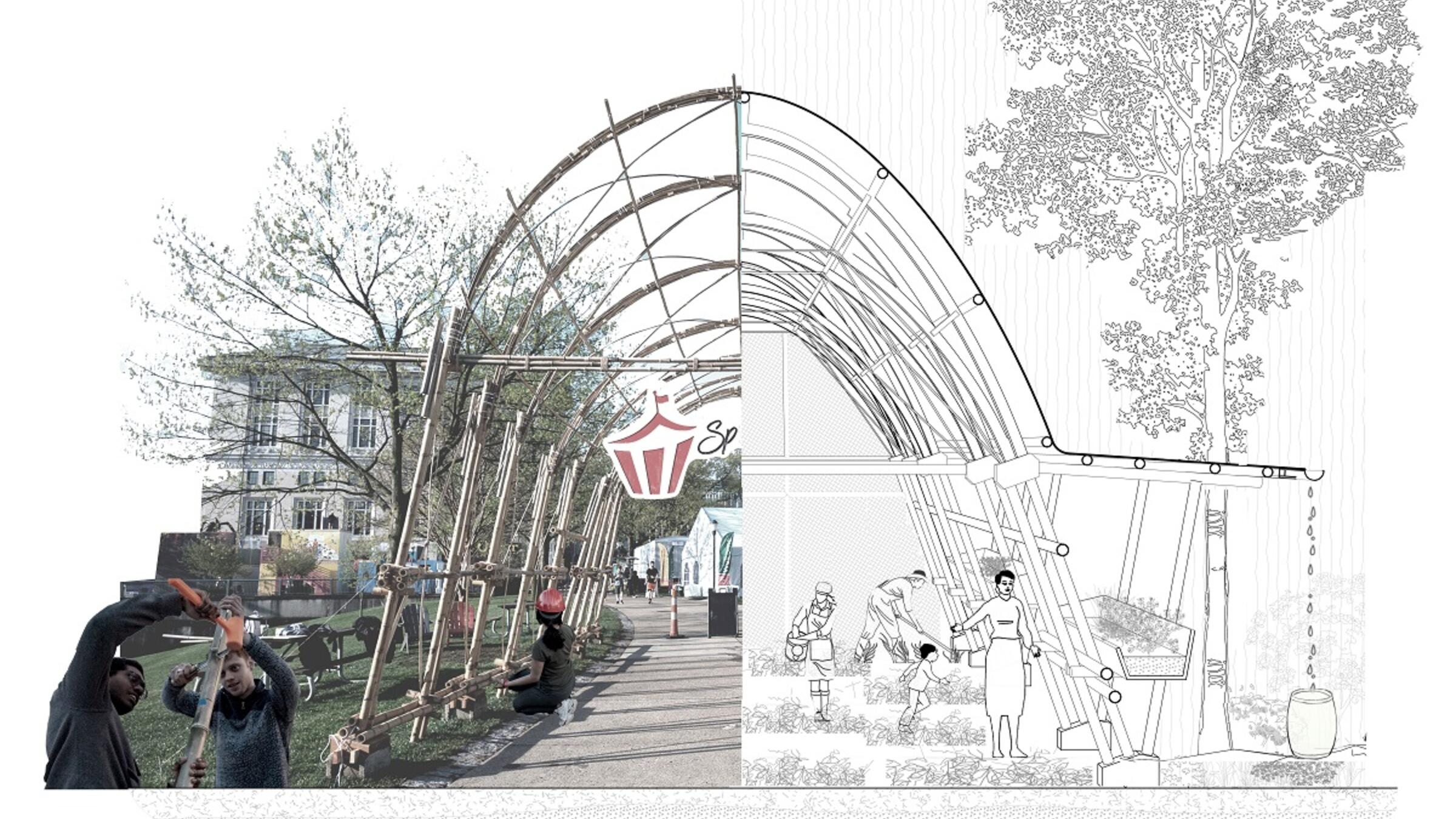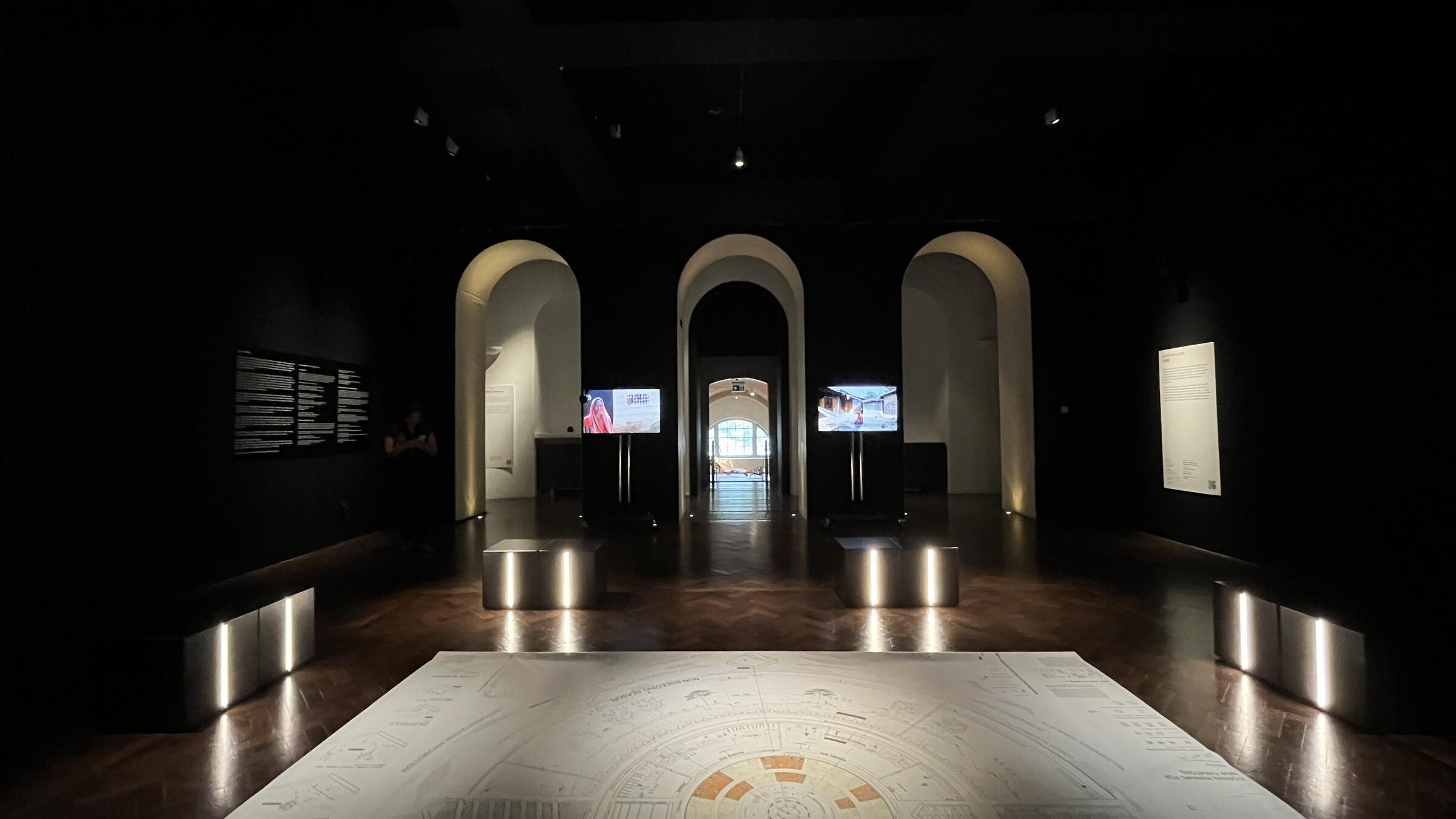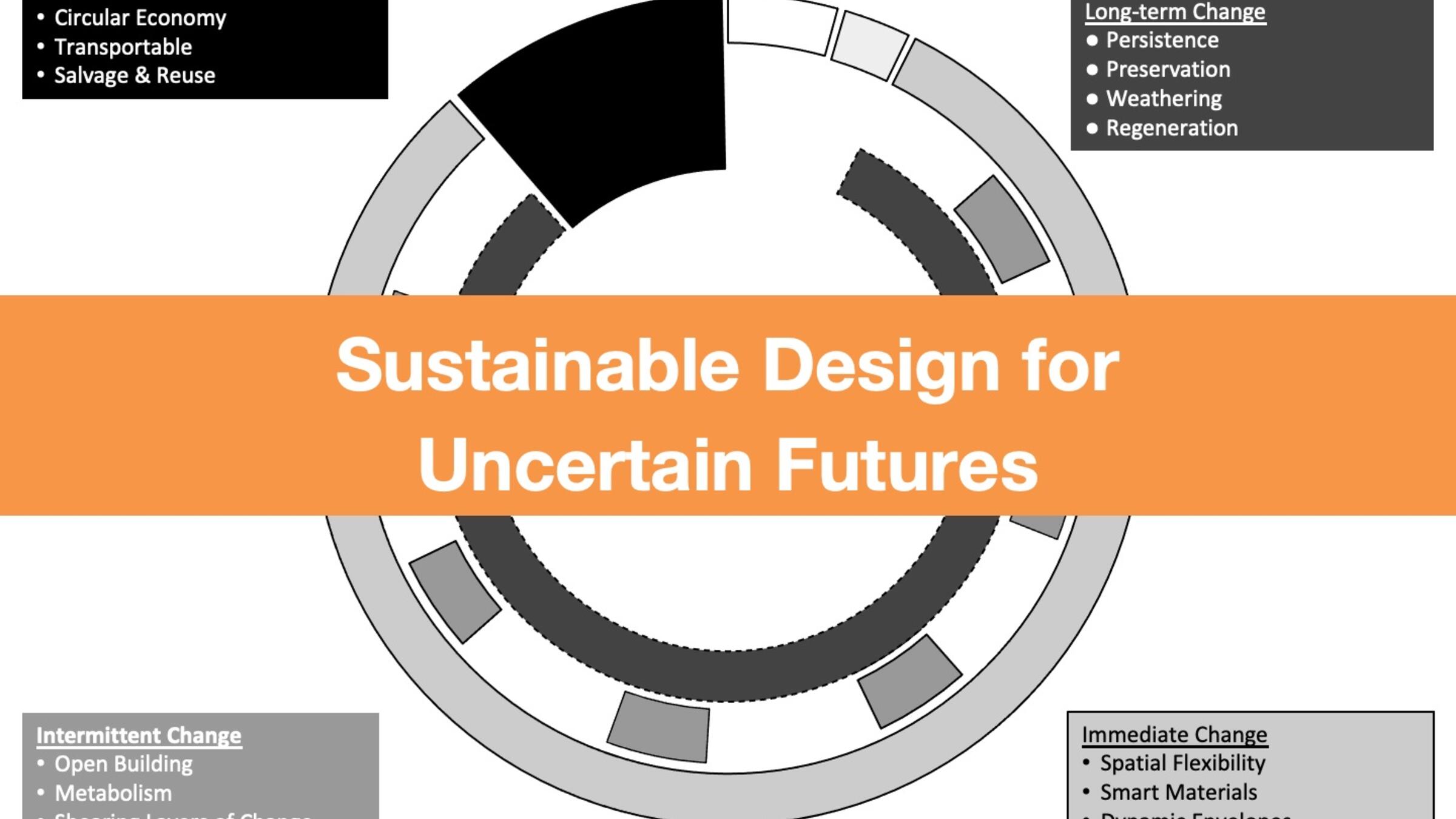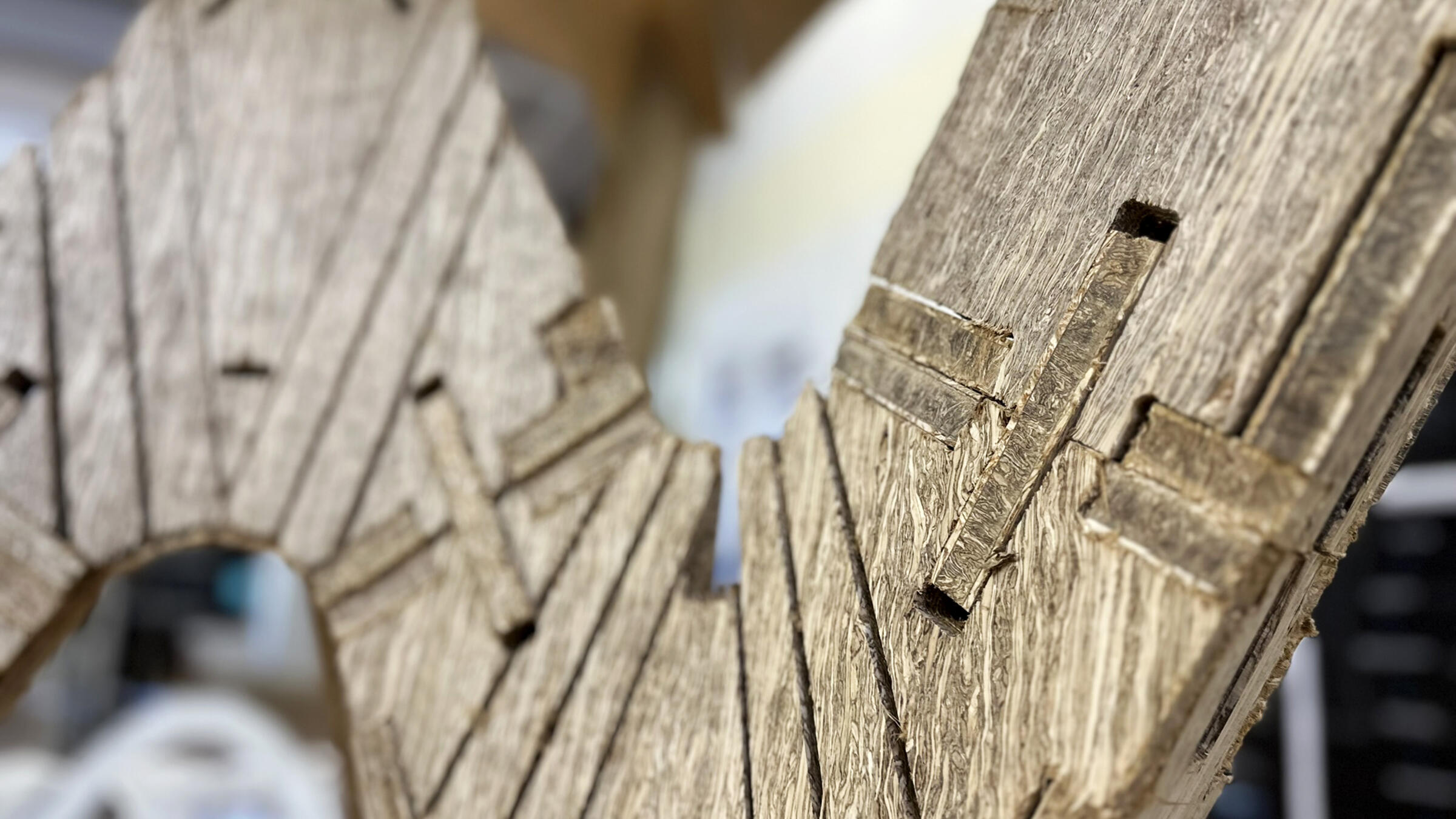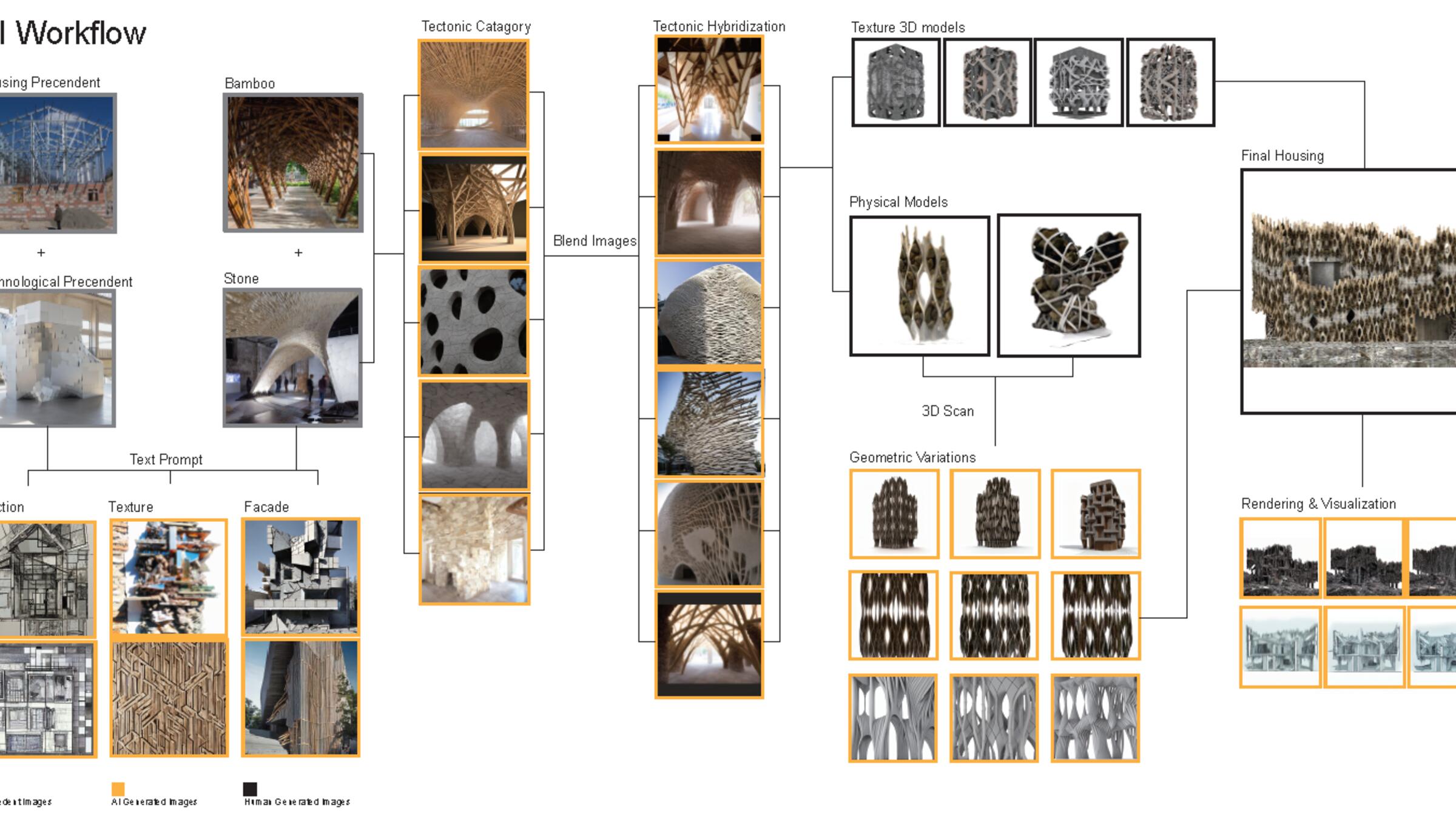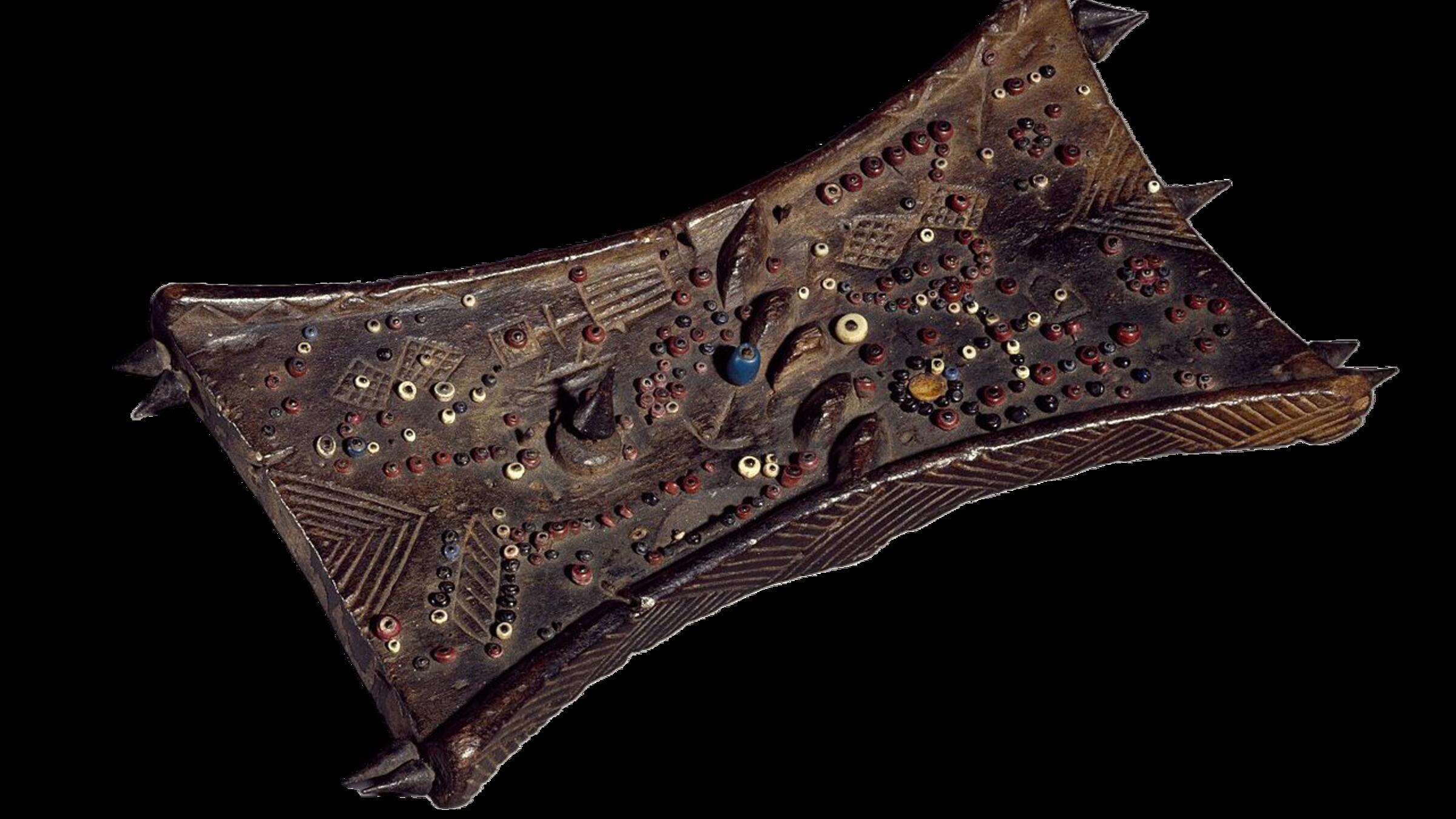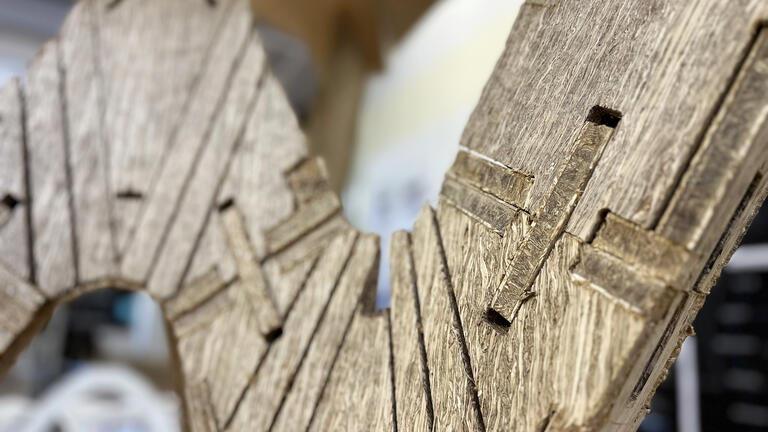
PJ Dick Innovation Fund: Faculty Grants Program
Faculty Funding
Regenerative Structures Laboratory. Credit: Juney Lee
PJ Dick Trumbull Lindy Group established an Innovation Fund to support the pedagogical mission of Carnegie Mellon Architecture. The Fund supports the Faculty Grants Program, which supports faculty research and teaching innovations.
Jump To...
Round 3 applications are now open!
Full-time CM-A faculty are invited to apply by Friday, November 21, 2025. See below for application guidelines.
Please join us to celebrate the second round of projects on Friday, January 24, 2026 from 12:30–2:00pm at the 6555 Penn Ave Research Facility.
Current Projects
Throughout 2025, the second round of grant recipients have been hard at work on eight research projects and four experimental courses funded by the PJ Dick Innovation Fund.
-
2025 Project Grants
- Christine Mondor, Special Faculty; Title: From Pipes to People and Places: Regime Change in Urban Water Infrastructure
- Nida Rehman, Assistant Professor; Title: South Asian Urban Climates
- Dana Cupkova, Professor; Title: MycoRubble: Regenerative Biomatter
- Theodossis (Theo) Issaias, Special Faculty; Title: Unmapping State Monocultures
- Tommy CheeMou Yang, Special Faculty; Title: Of Mothers and Dragons: Tracing the Life Worlds of Chiang Mai’s Peri Urban through Water and Craft
- Vernelle A. A. Noel, Lucian and Rita Caste Assistant Professor in Architecture; Title: Building, Builders, and Built-Things: Pittsburgh, Charleston, and Chiang Mai
- Stefan Gruber, Associate Professor; Title: Commons-Public-Partnerships: Scaling Cooperative Housing for Just Transitions in Cities
- Vicky Achnani, Associate Studio Professor; Title: Second Life: From Waste to Oasis
2025 Teaching Grants
- Vicky Achnani, Associate Studio Professor; Title: Bending Active Systems_ Bamboo Research Pavilion I Prototyping material and spanning systems in Bamboo_ using robotic arms and steam-bending
- Jared Abraham, Associate Studio Professor; Title: Unlikely Hybrids
- Juney Lee, T. David Fitz-Gibbon Assistant Professor of Architecture; Title: 48-482/48-682: Advanced Structural Design - Computational Explorations
- Jongwan Kwon, Assistant Teaching Professor; Title: Material Regeneration: Prototyping Material Circularity
Project Grants
The PJ Dick Project Grants Program supports projects that address the School’s three pedagogical challenges: climate change, social justice and artificial intelligence. It supports the diverse work of Carnegie Mellon Architecture’s faculty in creative practice, professional practice, artistic practice, funded research, participatory design, design build, curation, scholarship, critical and digital humanities, and more.
The fund is intended to foster a variety of projects including:
- faculty seed funds to start a project with the aim of getting external support
- continued work on a project that may not have the option for sponsored research
- organizing symposia and conferences at the school
- publication and dissemination of mature projects
Previous recipients of PJ Dick Innovation funding are permitted to apply for continued funding for prior projects or support for new projects.
Example uses for funds include:
- Pre-project planning: feasibility studies, background research, teaming, grant writing
- Project execution: supplies, equipment, research assistants, travel
- Post-project dissemination: publications, exhibitions, media production
- Collaborative events and publications: symposia, conferences, workshops, pamphlets, anthologies, curatorial projects, group exhibitions, collective installations
Project Grants Funding Details
- Total funding available: $80,000 per year
- Funding per project: $2,500 to $20,000
- Total number of projects anticipated: 8-12 per year
-
The following information must be included in the submission.
- Project Details
- Project title
- Project lead (name, appointment)
- Project team (name(s), appointment(s), department(s), email(s))
- Total funding requested
- Abstract
- Provide a summary of the project, its relation to the three challenges, and its potential impact.* (up to 250 words)
- Key Image
- Provide an image that exemplifies the project and include an image credit.* (high-resolution image file, min. 1275 x 717 pixels, .jpg or .png format, landscape orientation preferred)
- Project Description
- Provide an overview of the project (the who, what, where, when, why and how) and address the following questions:
- How does the project address at least one of the three challenges in critical and innovative ways?
- What approaches, methods or frameworks will be used to further the work?
- How will the project promote new work, further existing work and/or disseminate prior work?
- How will the project impact your future career path?
- If funded, what outcomes will result?
- If funded, what school, college and/or university resources will be required?
- Upload the project description as a single PDF (up to 1,500 words). Supporting images, figures and tables may be included.
- Provide an overview of the project (the who, what, where, when, why and how) and address the following questions:
- Budget
- Use the Budget Template to outline the projected expenses.
- Download the sheet as a Microsoft Excel (.xlsx) file. Name the file PIAndrewID_Budget.xlsx and upload it using the submission form.
- Use the Budget Template to outline the projected expenses.
- Supporting Work Samples
- Provide links or upload a single PDF illustrating previous or in-process work related to the proposal.
*Information may be used by the School to announce and promote the grant program.
- Project Details
Teaching Grants
The Carnegie Mellon School of Architecture is committed to the mission defining challenges of climate change, social justice, and artificial intelligence. The PJ Dick Teaching Grants Program recognizes that the future of architecture and its related industries start with the education of the profession’s next generation of practitioners through innovative pedagogies. The teaching grants are focused on supporting changes to existing courses and development of new courses that focus on the three challenges.
Previous PJ Dick Innovation Fund recipients are permitted to apply for continued funding for prior courses or support for new courses.
Example uses for funds include:
- Developing new courses
- Implementing significant changes to existing courses
- Piloting new initiatives including materials, equipment, external expertise and more
Teaching Grants Funding Details
- Total funding available: $20,000 per year
- Funding per course: $2,500 to $5,000
- Total number of courses: 4-6 per year
-
The following information must be included in the submission.
- Course Details
- Course title
- Instructor (name, appointment)
- Teaching team (name(s), appointment(s), department(s), email(s), role(s) (e.g. co-instructor, consultant, TA, etc.))
- When do you plan on first offering the new or revised course?
- How often would the course run in subsequent years?
- Do you anticipate this course replacing specific classes in your current teaching load?
- What is the target enrollment for the course?
- Total funding requested
- Abstract
- Provide a summary of the course, its relation to the three challenges, and its potential impact.* (up to 250 words)
- Key Image
- Provide an image that exemplifies the course and include an image credit.* (high-resolution image file, min. 1275 x 717 pixels, .jpg or .png format, landscape orientation preferred)
- Pedagogy and Curricular Impact
- Describe the course’s pedagogical aims and how it relates to the larger curricular framework and mission of the School, and address the following questions:
- Is the course required, a selective or an elective?
- What cohorts and degree programs is the course intended for and how will it impact these programs?
- Does this course relate to other courses at Carnegie Mellon Architecture and how will it impact the School at large?
- How will this course develop your overall teaching trajectory?
- What activities or resources do you intend to pilot during the course?
- How will the PJ Dick Innovation Fund help you develop the course toward these aims?
- Upload the course description as a single PDF (up to 1,000 words). Supporting images, figures and tables may be included.
- Describe the course’s pedagogical aims and how it relates to the larger curricular framework and mission of the School, and address the following questions:
- Budget
- Use the Budget Template to outline the projected expenses.
- Download the sheet as a Microsoft Excel (.xlsx) file. Name the file PIAndrewID_Budget.xlsx and upload it using the submission form.
- Use the Budget Template to outline the projected expenses.
- Supporting Work Samples
- Provide links or upload a single PDF illustrating previous or in-process teaching examples related to the proposal.
*Information may be used by the School to announce and promote the grant program.
- Course Details
How to apply
-
Use this google form to submit all required materials by the deadline.
-
Proposals will be reviewed by a committee comprised of:
- Head of School
- Associate Heads
- Director of Student Affairs
- Faculty representative (ineligible during funding cycle)
- CFA Office of Research & Creative Practice representative
The review committee will communicate funding decisions in writing by the deadline below. The committee may accept proposals with the request to alter the total funding requested by the applicant.
-
- Recipients will be required to periodically meet with Grant administrators to discuss progress. These quarterly progress meetings will focus on key project stages:
- Initial Meeting - Mid-January:
- Review of project scope, deliverables, and budget.
- Develop the project plan, including action tasks, timeline, and resource allocation.
- Discuss procurement and payment procedures for goods and services.
- Mid-Term Meeting - Mid-September:
- Monitor progress on project tasks, schedule, and budget.
- Closure Meeting - Mid-November:
- Conduct a final review of deliverables and budget.
- Preparation of the final project presentation for sponsors.
- Initial Meeting - Mid-January:
- Recipients will be required to submit a final report documenting the process and outcomes of each project.
- Recipients may be asked to provide materials or engage in outreach activities related to the PJ Dick Innovation Fund.
- Recipients will be required to present their projects at a public event following the close of each funding cycle.
- Recipients will be required to periodically meet with Grant administrators to discuss progress. These quarterly progress meetings will focus on key project stages:
-
All full-time Carnegie Mellon Architecture faculty contracted to teach through the spring 2027 semester are eligible to apply as a project lead. All other faculty are encouraged to join a project team with at least one eligible full-time faculty member.
Up to $80,000 in project support and $20,000 in teaching support will be distributed each year.
Request for Proposals: Announced October 2025
Submission Deadline: Friday, November 21, 2025, at 11:59pm ET
Awardees Notified: Late December 2025
Award Decision: Announced early January 2026
Project Start: January 1, 2026
Project End: December 31, 2026
Project Report: Submit no more than 30 days after project/course end date
Project Presentation: Spring term following project/course end date -
Can funding be used for faculty salary?
Unless directly stipulated, funding cannot be used for faculty salary.Can grant recipients apply for additional funding in subsequent years?
Yes, recipients can apply to continue existing projects or start new projects. In each case, applicants should follow the regular application timeline and guidelines.Can a team of multiple people apply?
Yes, collaborative teams are welcome to apply. Team members can be from other departments, but the project lead should be a full-time Carnegie Mellon Architecture faculty member. Budgets for team projects should still fall within the proposed funding ranges.Can I apply as a project lead on one project and be listed as a team member on other applications during the same funding cycle?
Yes, you can be listed on multiple applications but can only submit one application per cycle as a project lead.Can PhD students apply for project or teaching grants?
PhD students can be listed as team members on a grant application but cannot apply as a project lead.
Previous Recipients
2024 Grants Recipients
-
- 2024: Project Grants
- Jeremy Ficca, Associate Professor; Title: Farm to Prototype: Constructing Biogenic Robustness through Hempcrete Prototypes
- Tommy CheeMou Yang, Visiting Special Faculty; Title: Village in the City, City in the Village: The Twelve Villages of San Pu Loei
- Sarosh Anklesaria, Assistant Teaching Professor; Title: Contestations of Modernity: Origins, Obsolescence and Liberatory futures for a City Museum
- Vernelle A. A. Noel, Lucian and Rita Caste Assistant Professor in Architecture; Title: Craft Practices and Computation in Three Cultures: Pittsburgh, South Carolina and Thailand
- Azadeh O. Sawyer, Assistant Professor in Building Technology; Title: Leveraging AI for Equitable Lighting: Smart and Adaptive Solutions for Healthy Environments
- Vicki Achnani, Associate Studio Professor; Title: The Second Life: From Waste to Oasis_ A Greenhouse Design-Build Project Using Bamboo as the Primary Material
- Priyanka Bista, Joseph F. Thomas Visiting Professor; Title: Sharing the Entangled Stories of the Anthropocene: Multispecies Conflicts/Multispecies Futures Globally and Locally
- Joshua Lee, Assistant Professor; Title: Sustainable Design for Uncertain Futures Book Production and Website Enhancement Support
- Matthew Huber, Special Faculty; Title: (de)Mass(ing) Timber: Geometric and Tectonic Strategies for Material Resource Reduction in Timber Construction
- Juney Lee, T. David Fitz-Gibbon Assistant Professor of Architecture; Title: Regenerative Structures Laboratory: Seed Funding for Pilot Prototype
- 2024: Teaching Grants
- Jongwan Kwon, Assistant Teaching Professor; Title: Urbanism and Social Production of Space
- Dana Cupkova, Associate Professor; Title: Image Deep: /Contested Matter
- Francesca Torello, Special Faculty; Title: The Pittsburgh Sequence
- Jared Abraham, Associate Studio Professor; Title: Mixed Use in Pittsburgh's “Climate Haven”
- Daragh Byrne, Associate Teaching Professor; Title: Data Dump: Unmaking Intelligent Spaces
- Tuliza Sindi, Ann Kalla Visiting Professor in Architecture; Title: Unreasonable Architecture
- 2024: Project Grants
